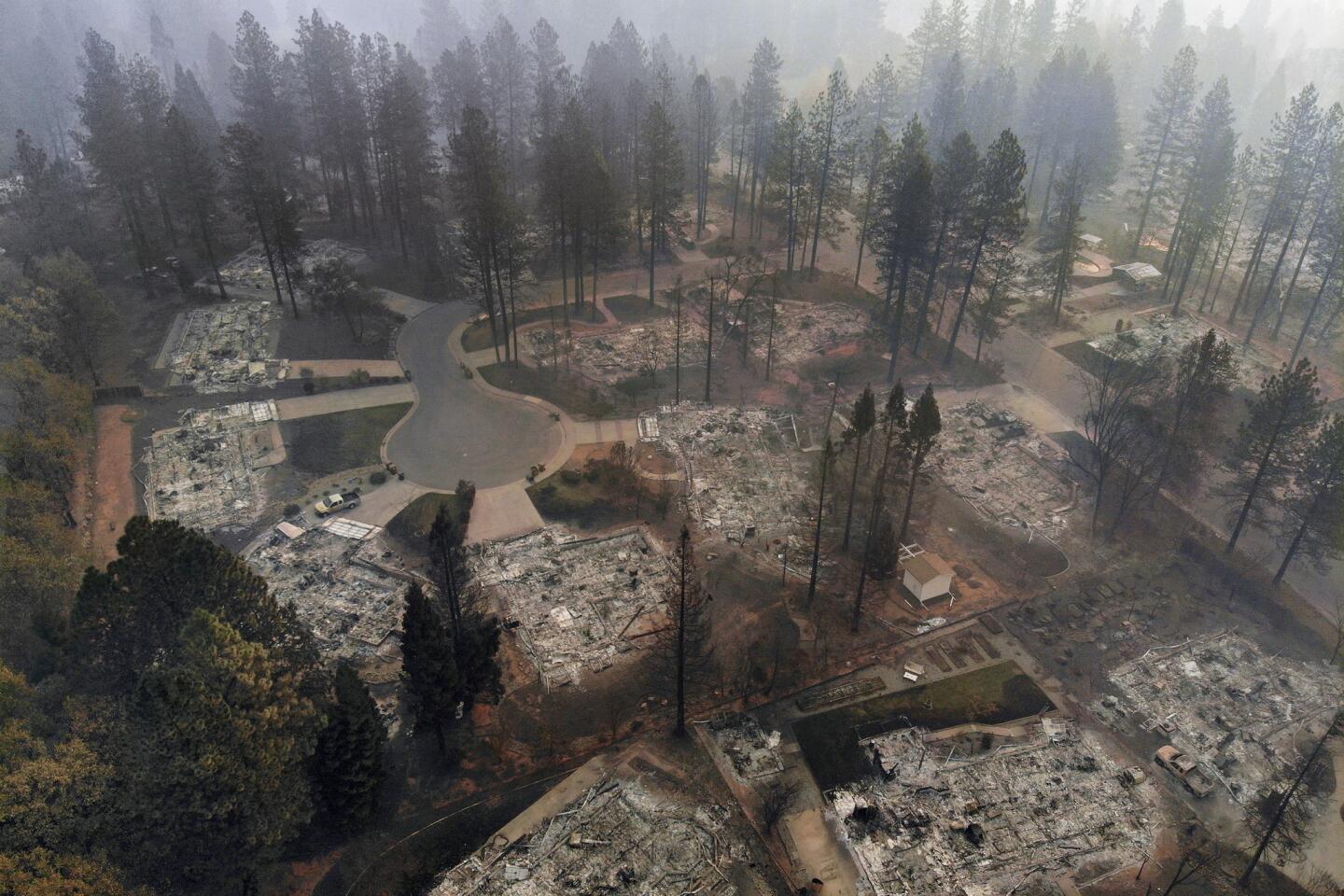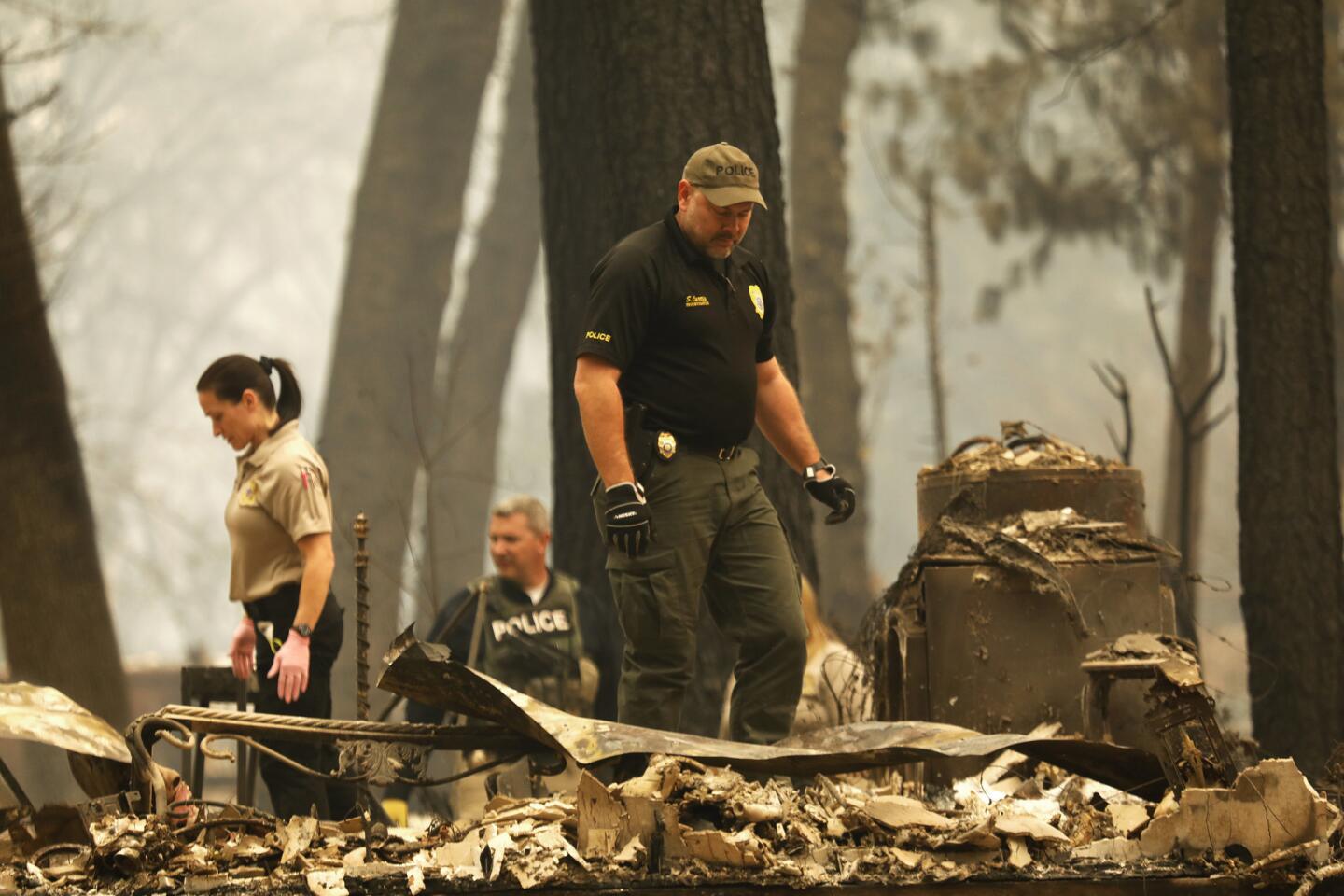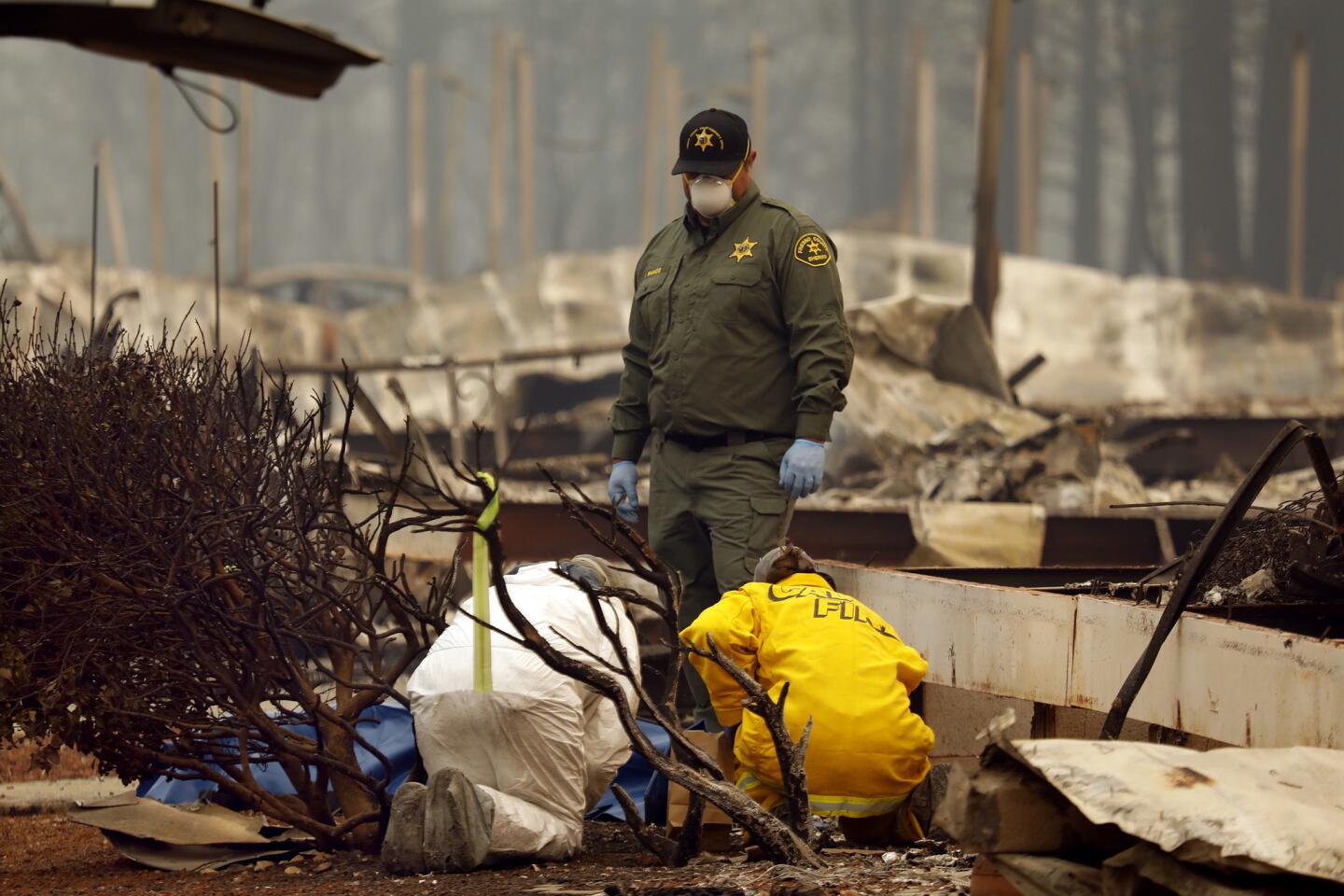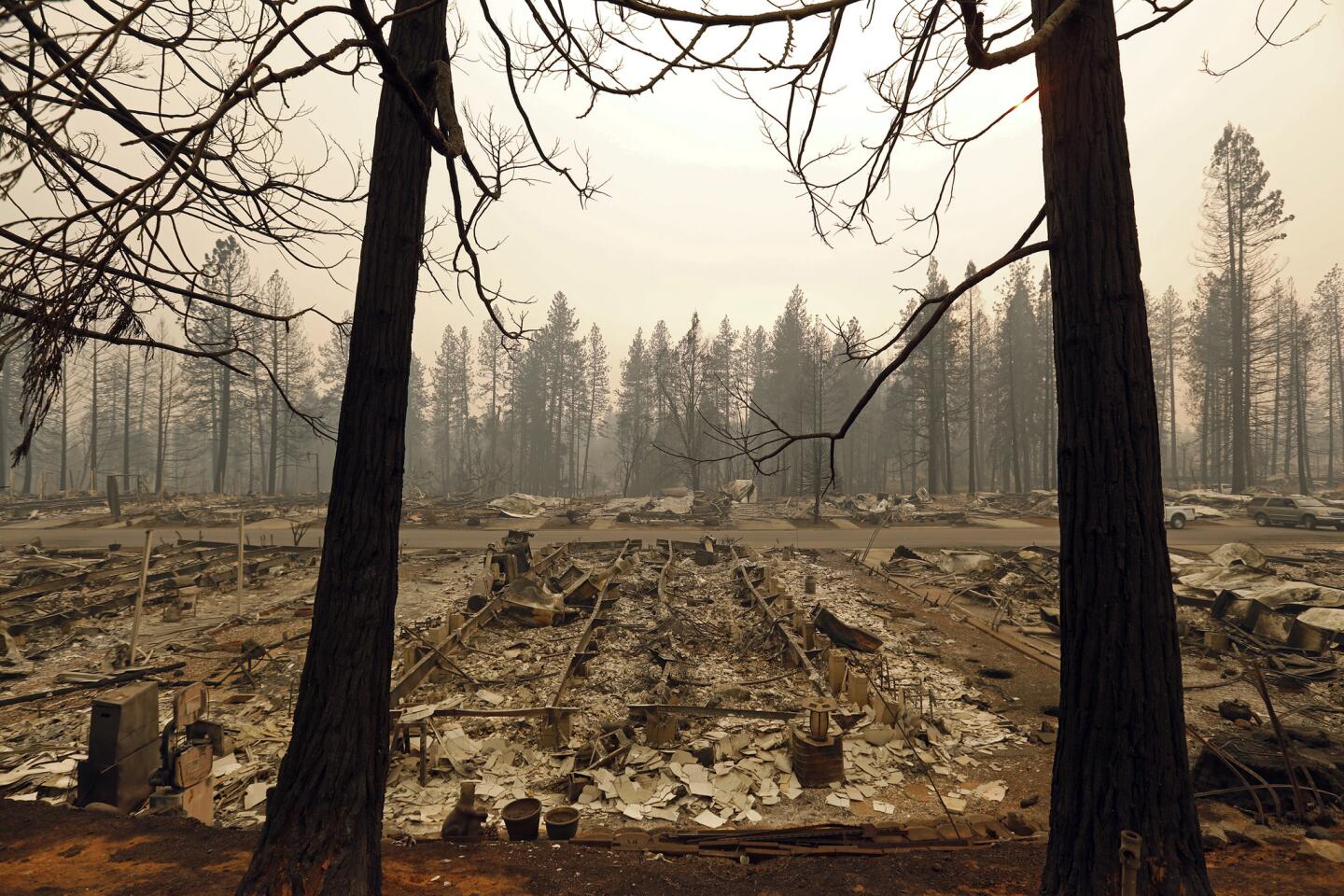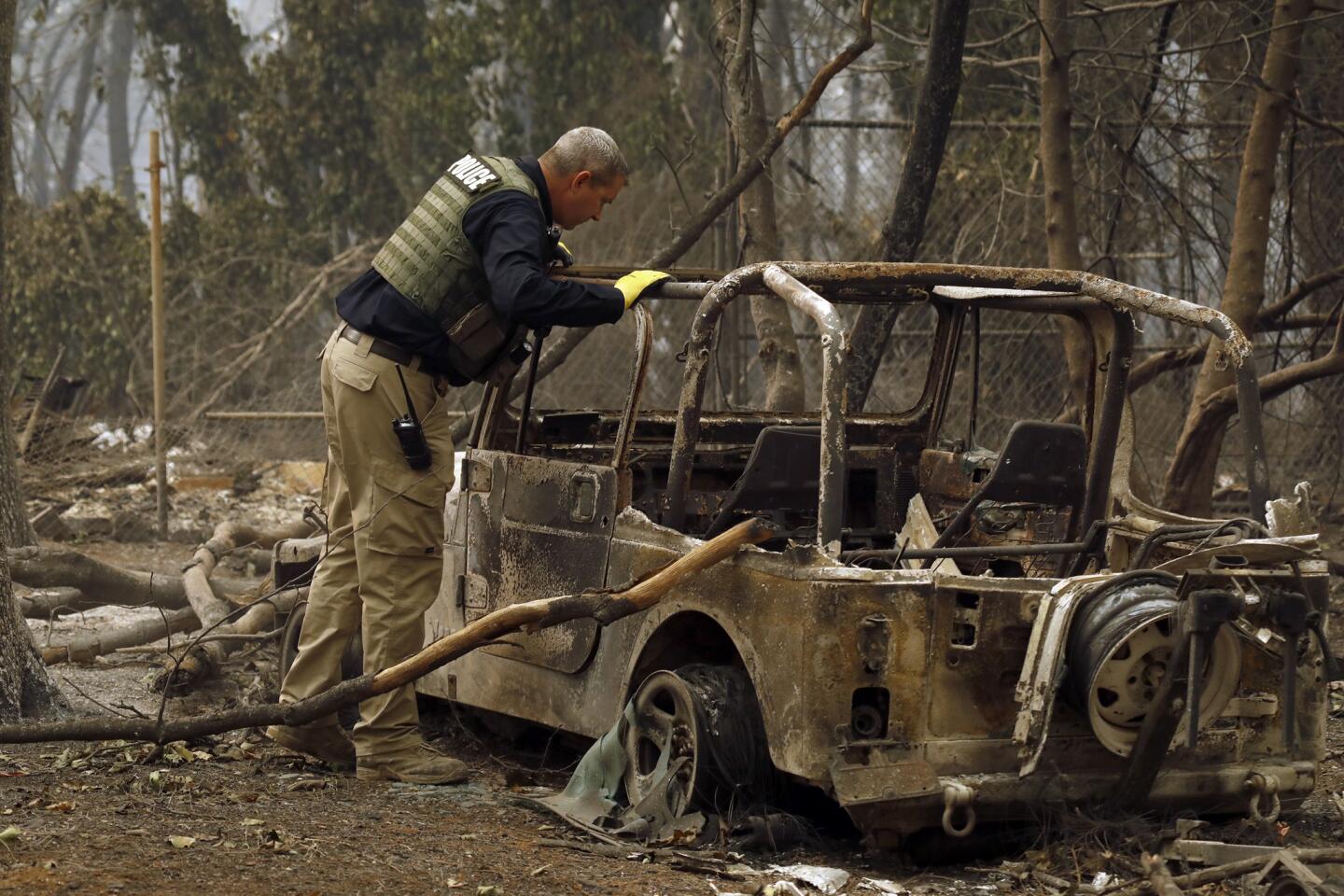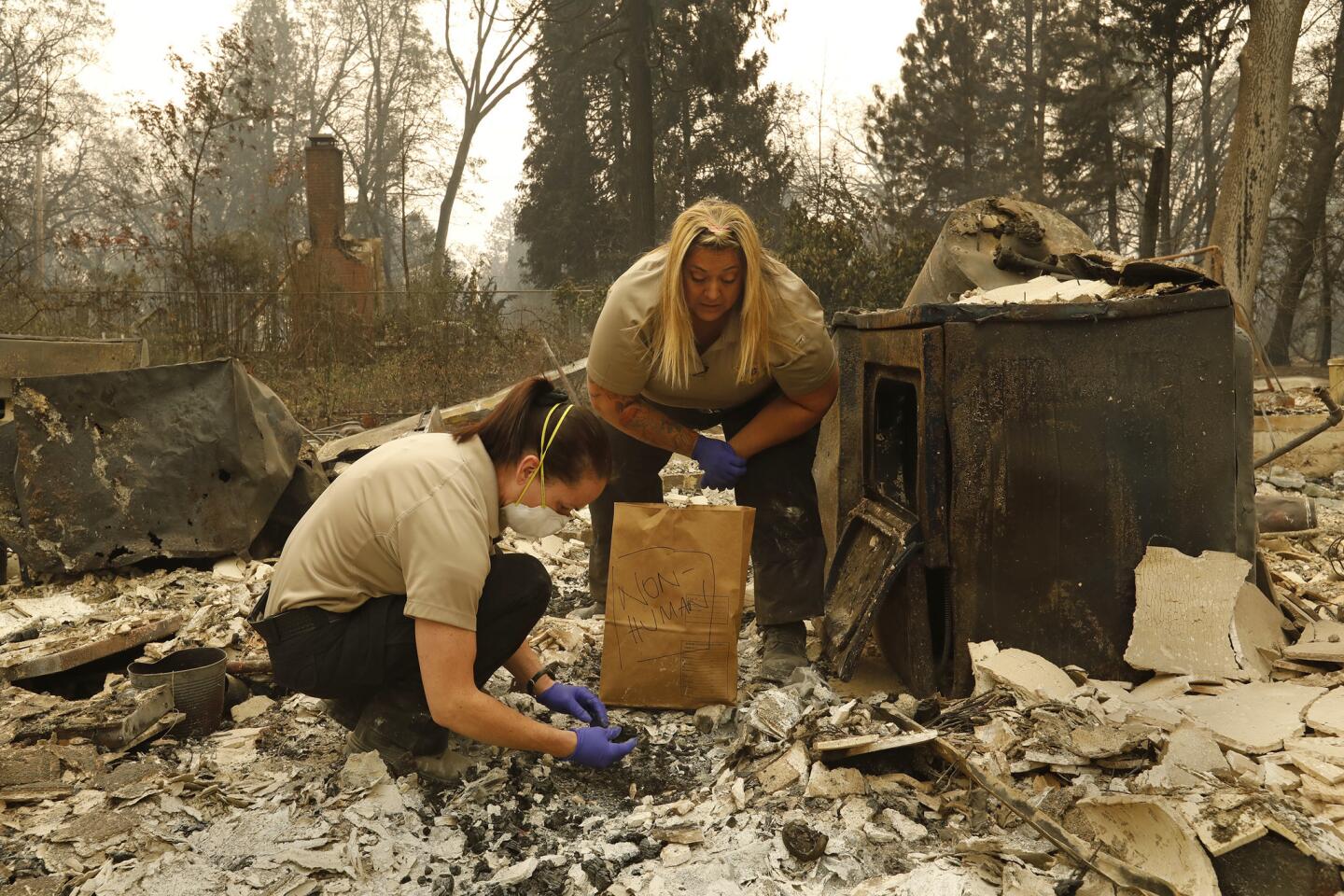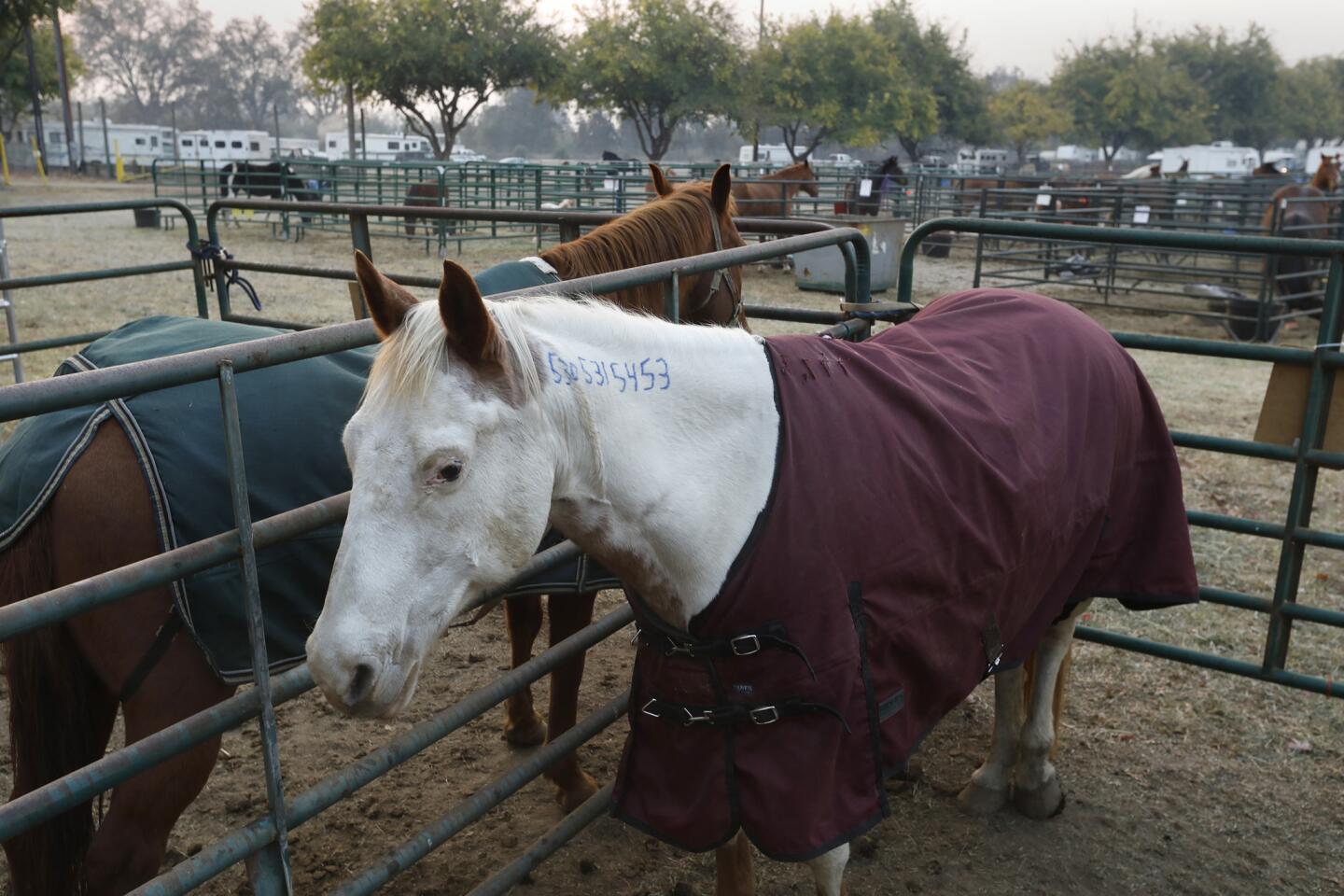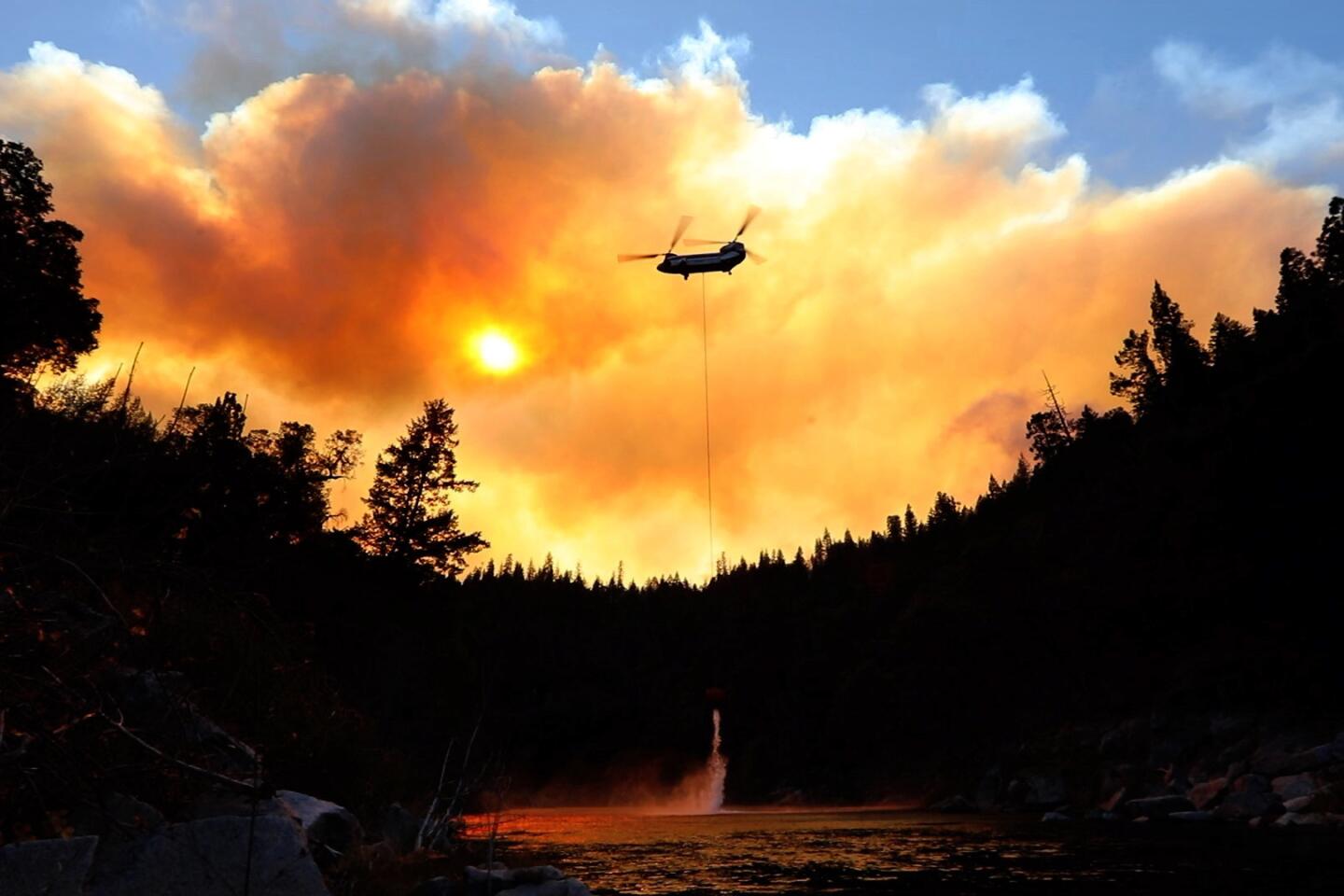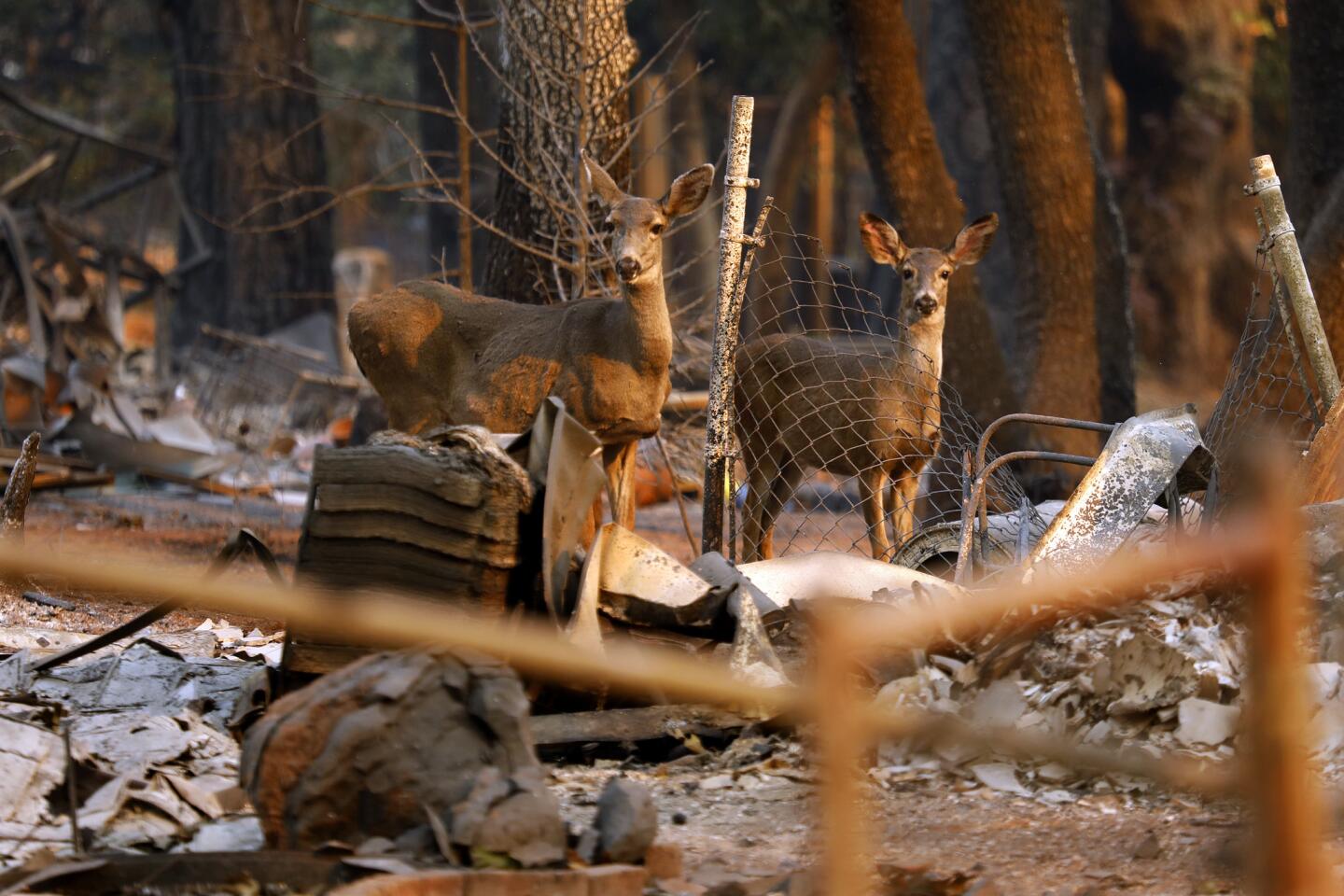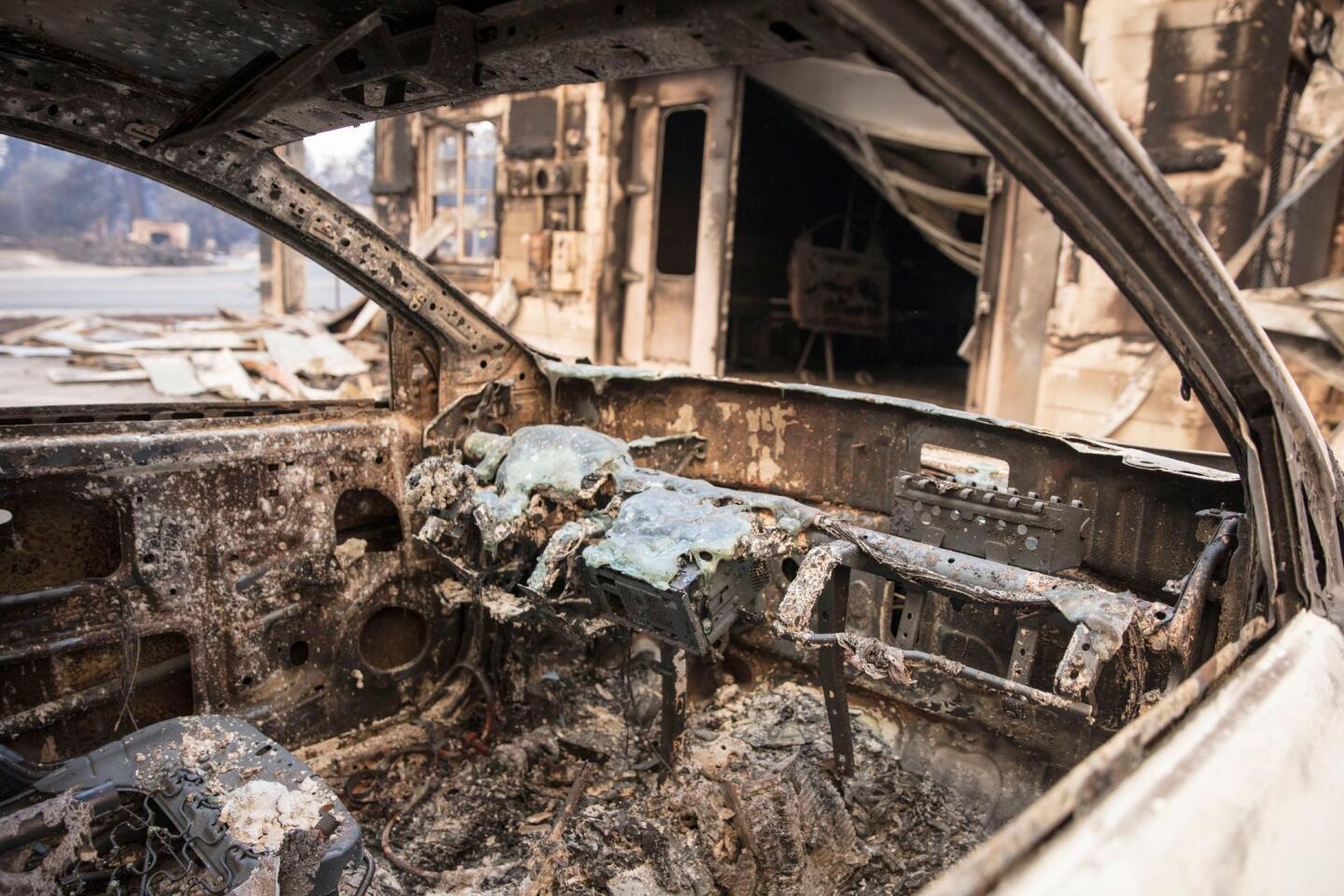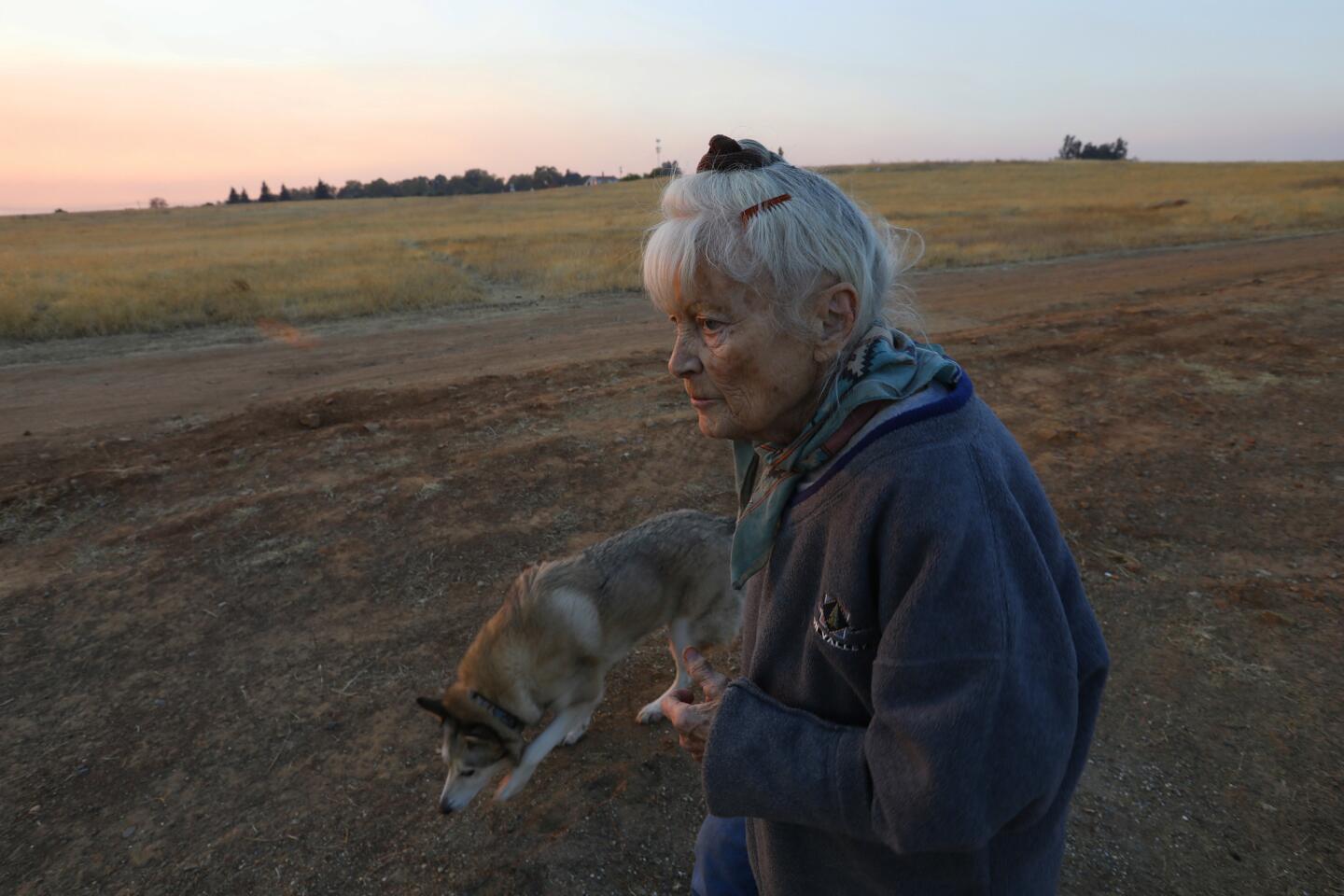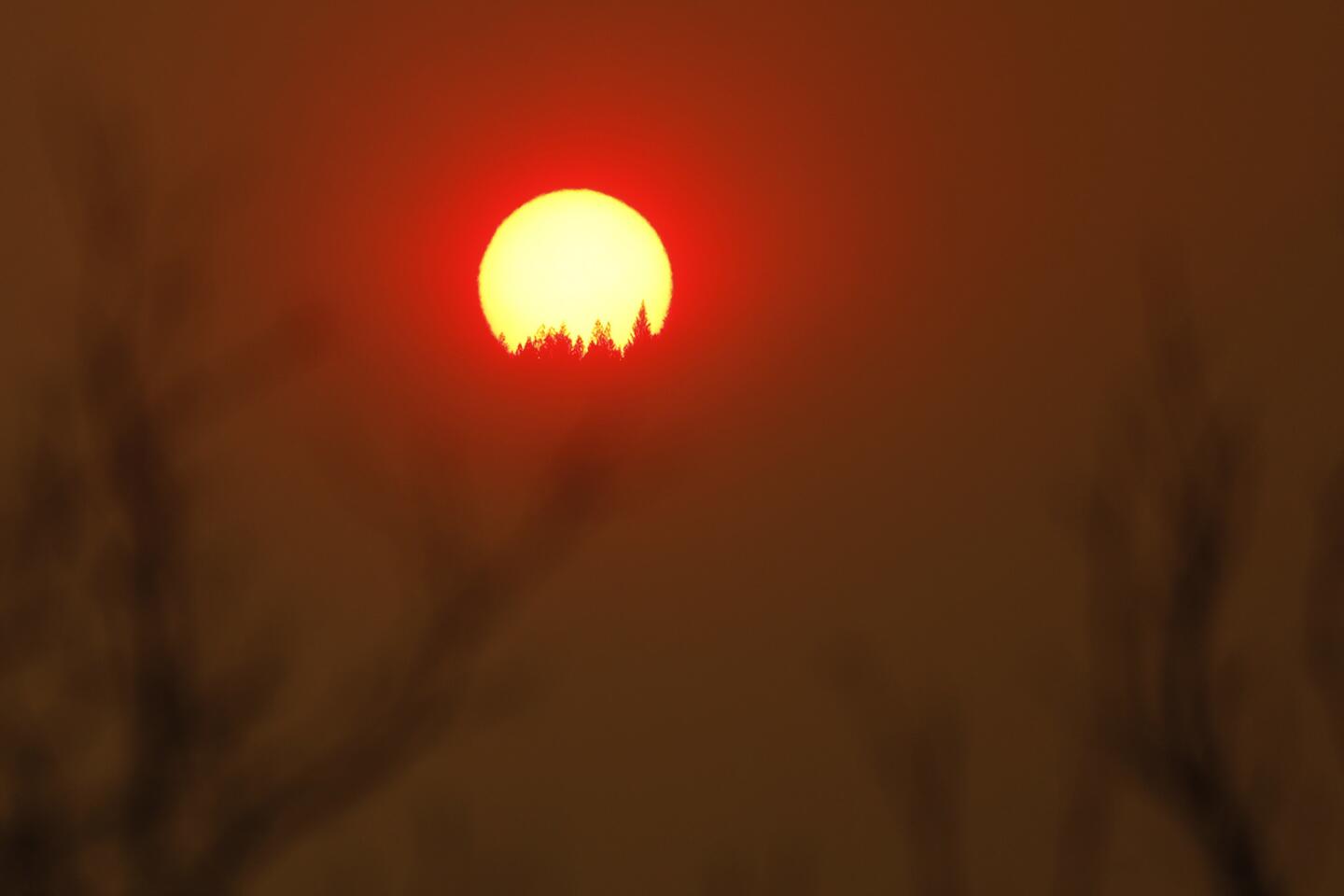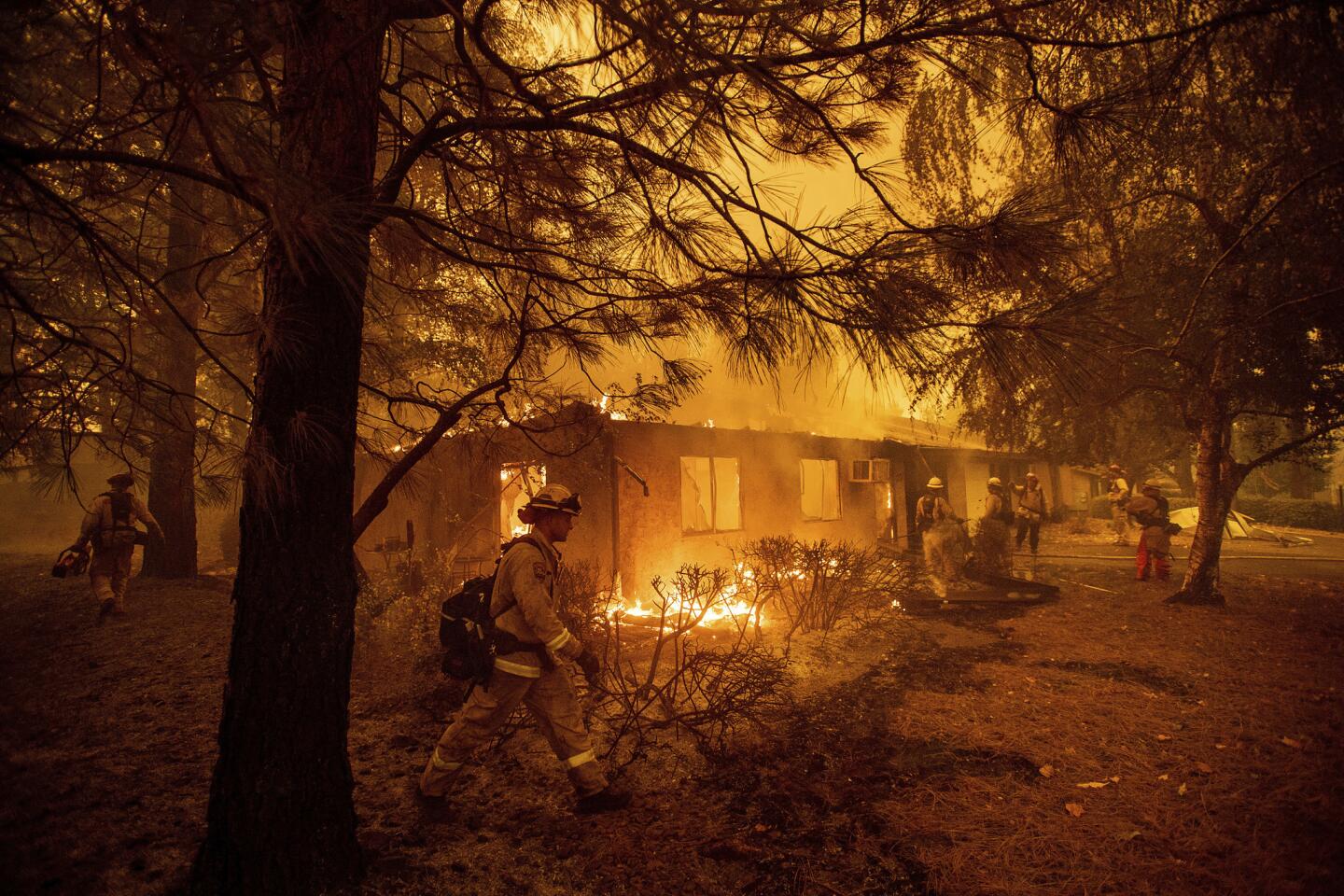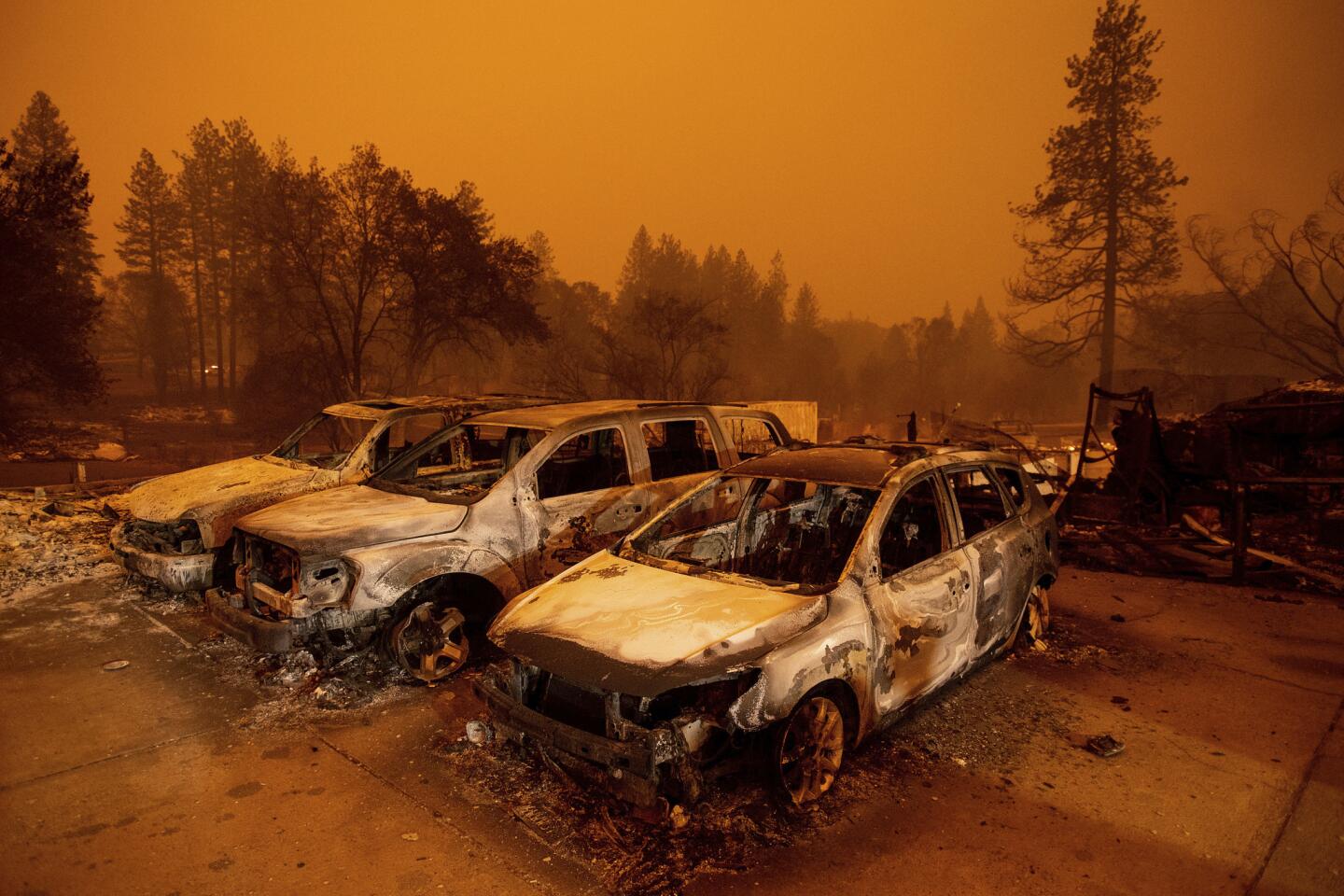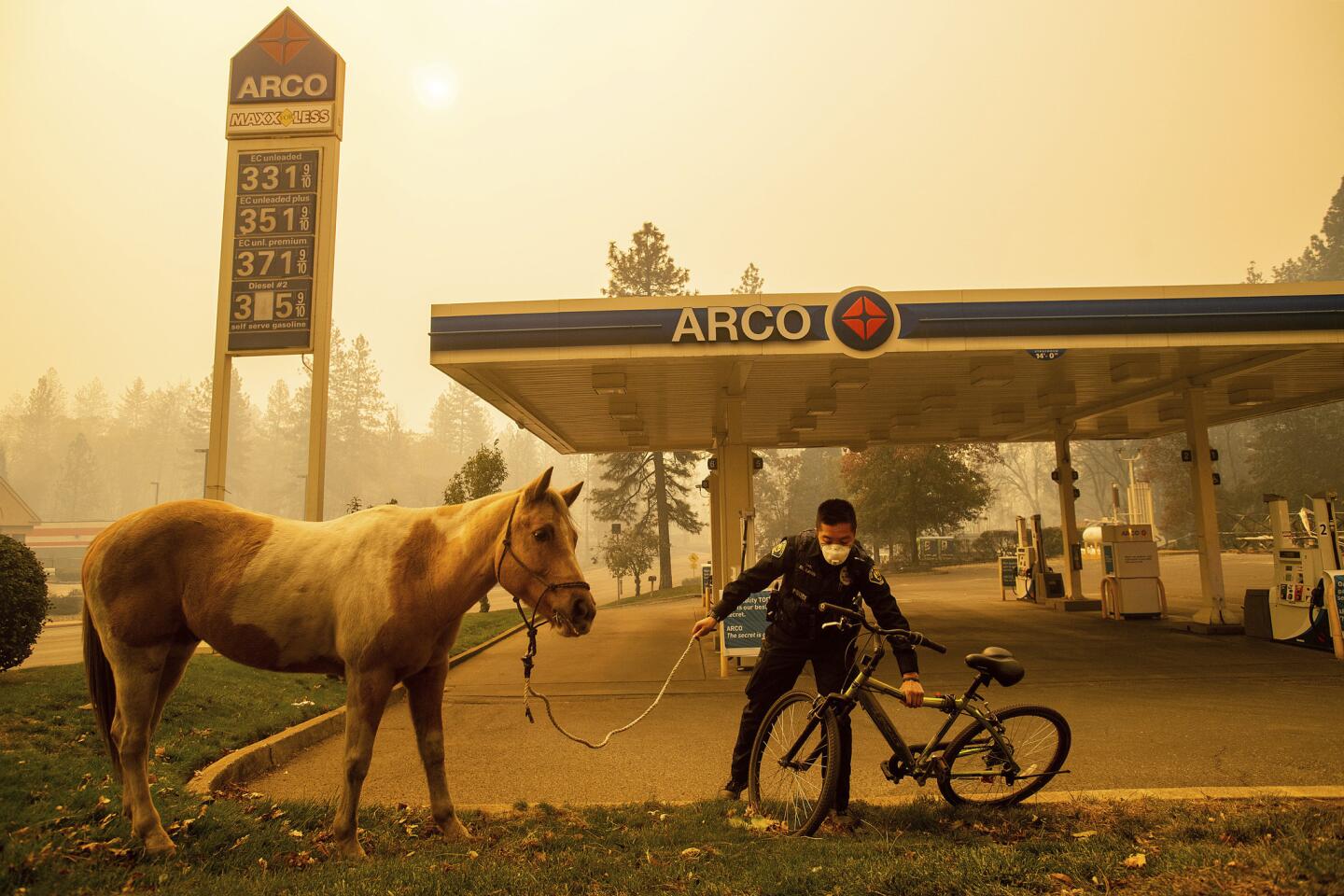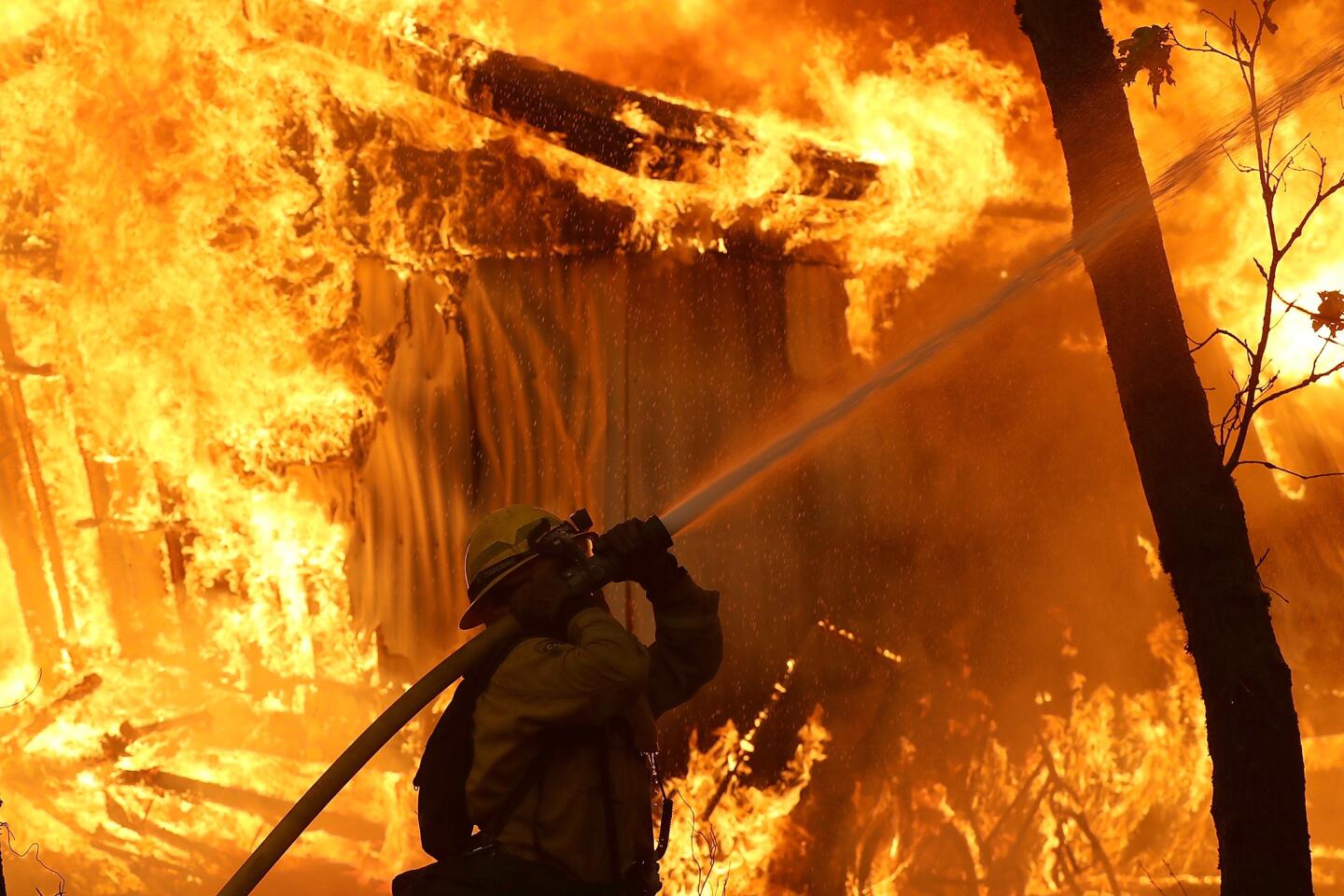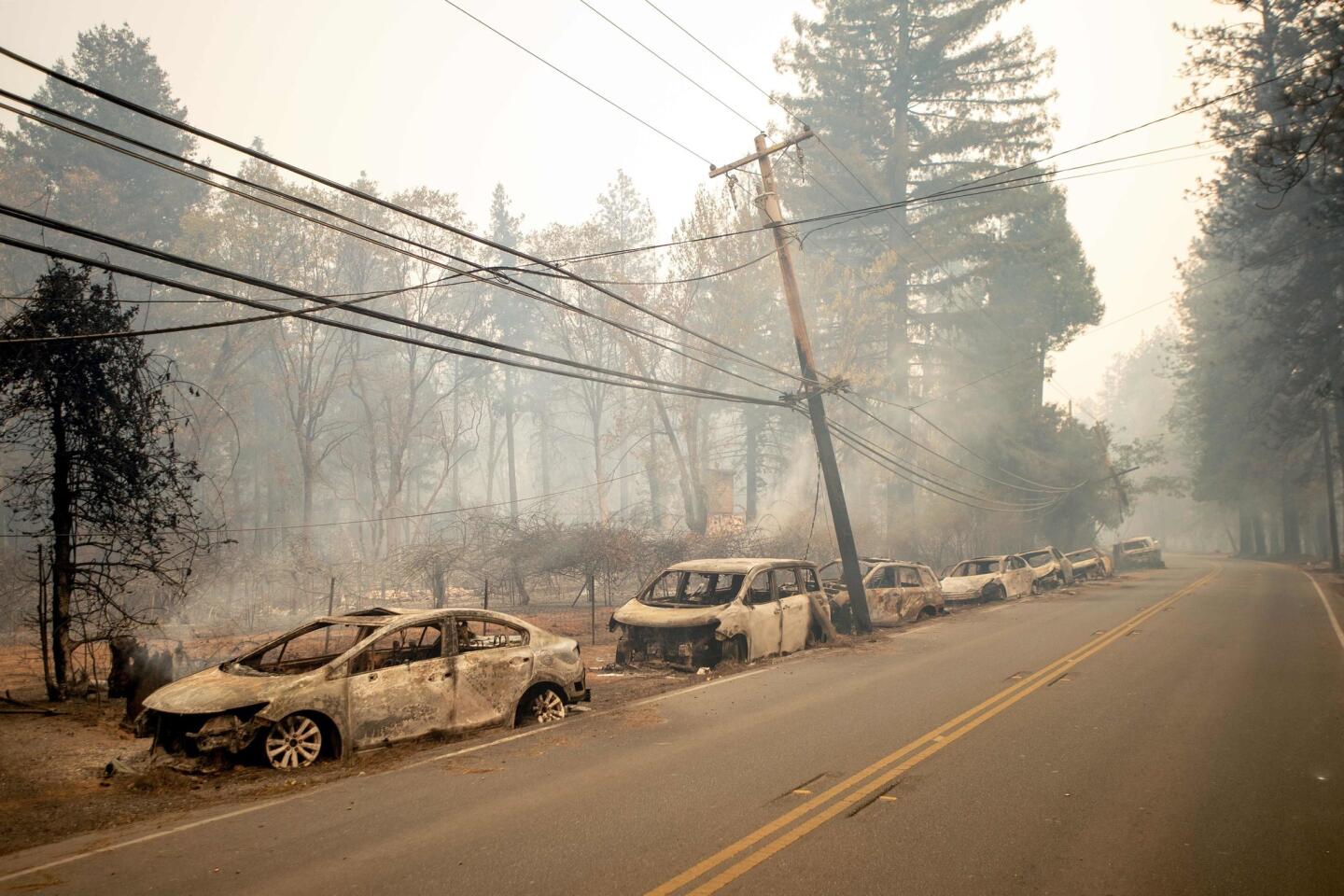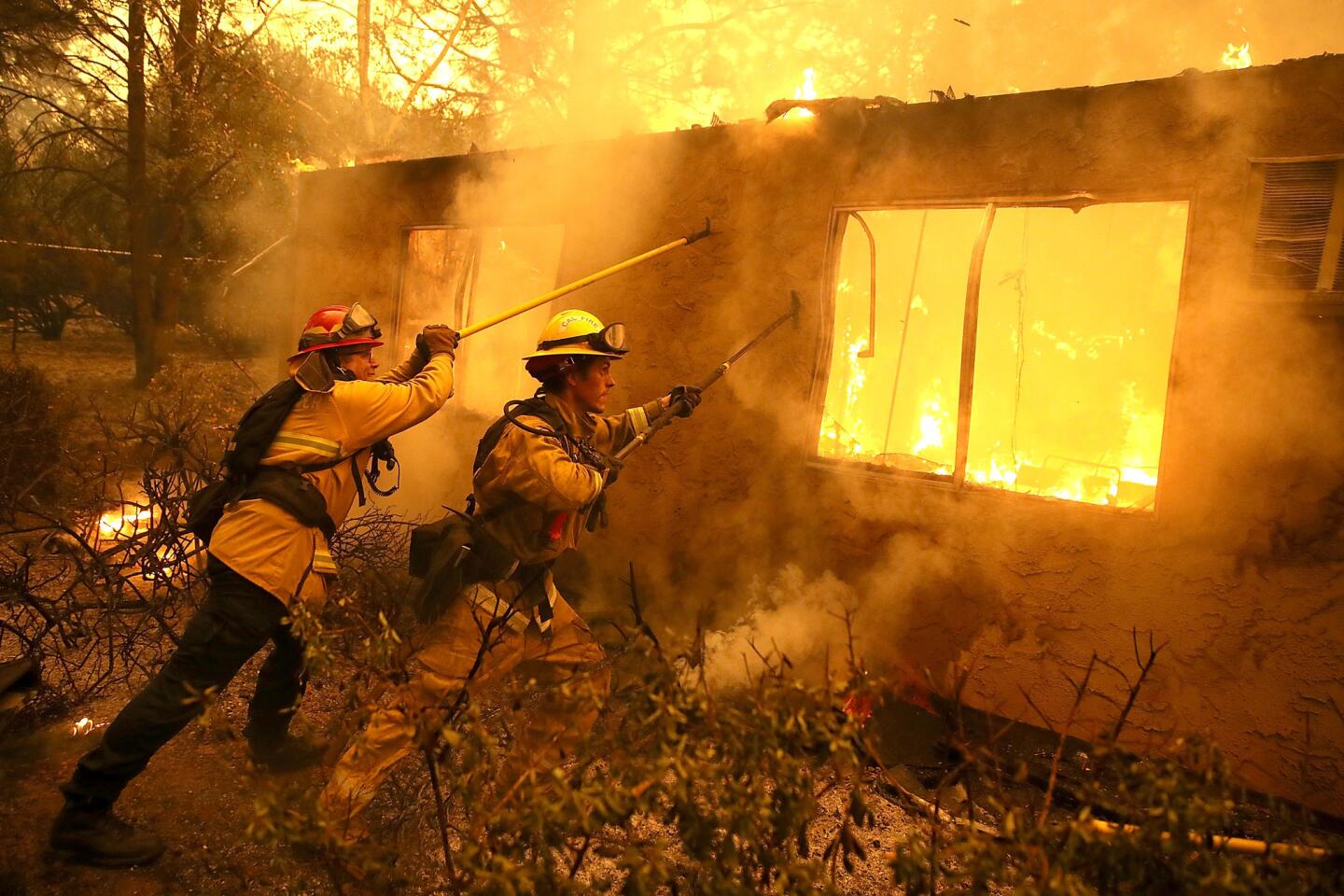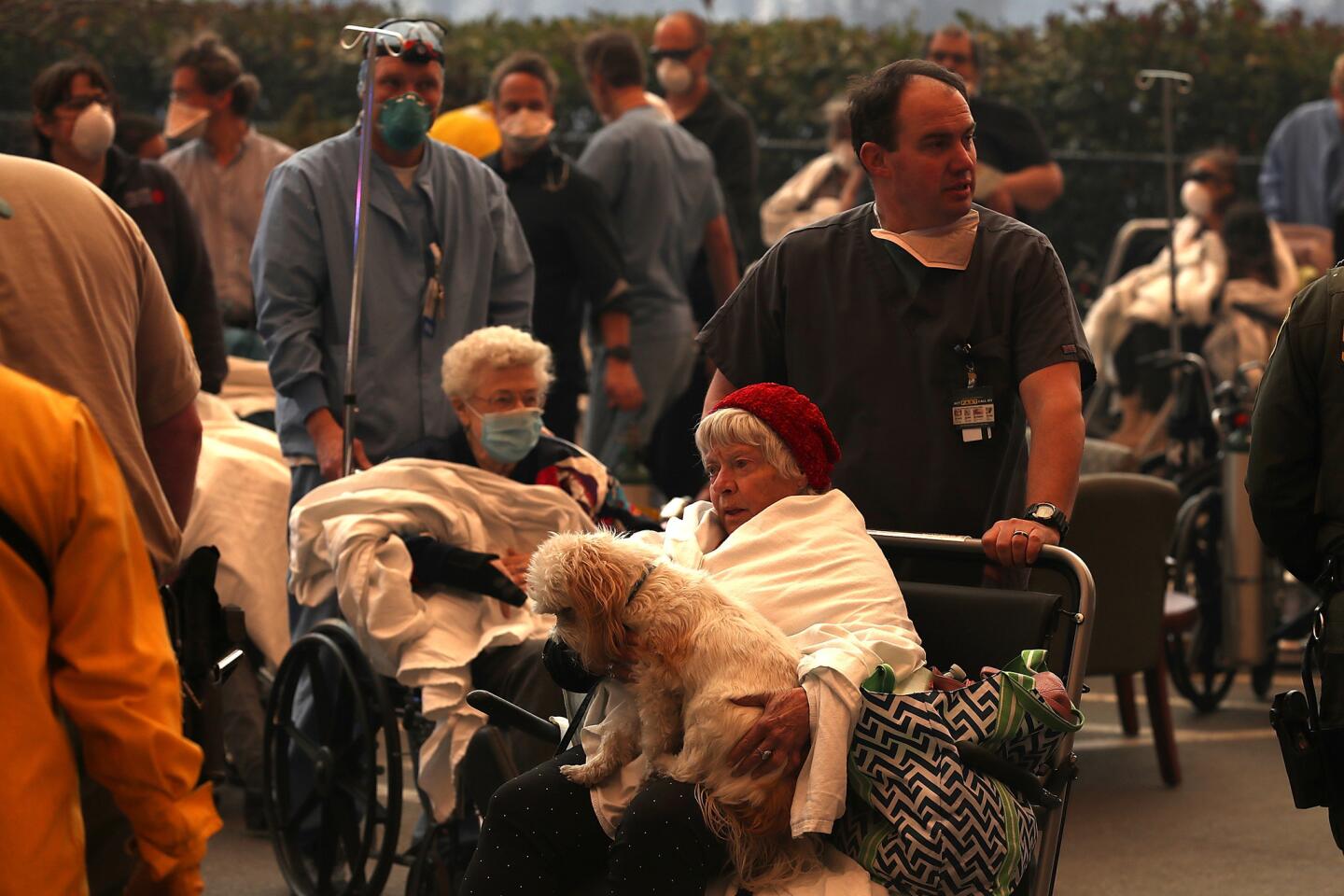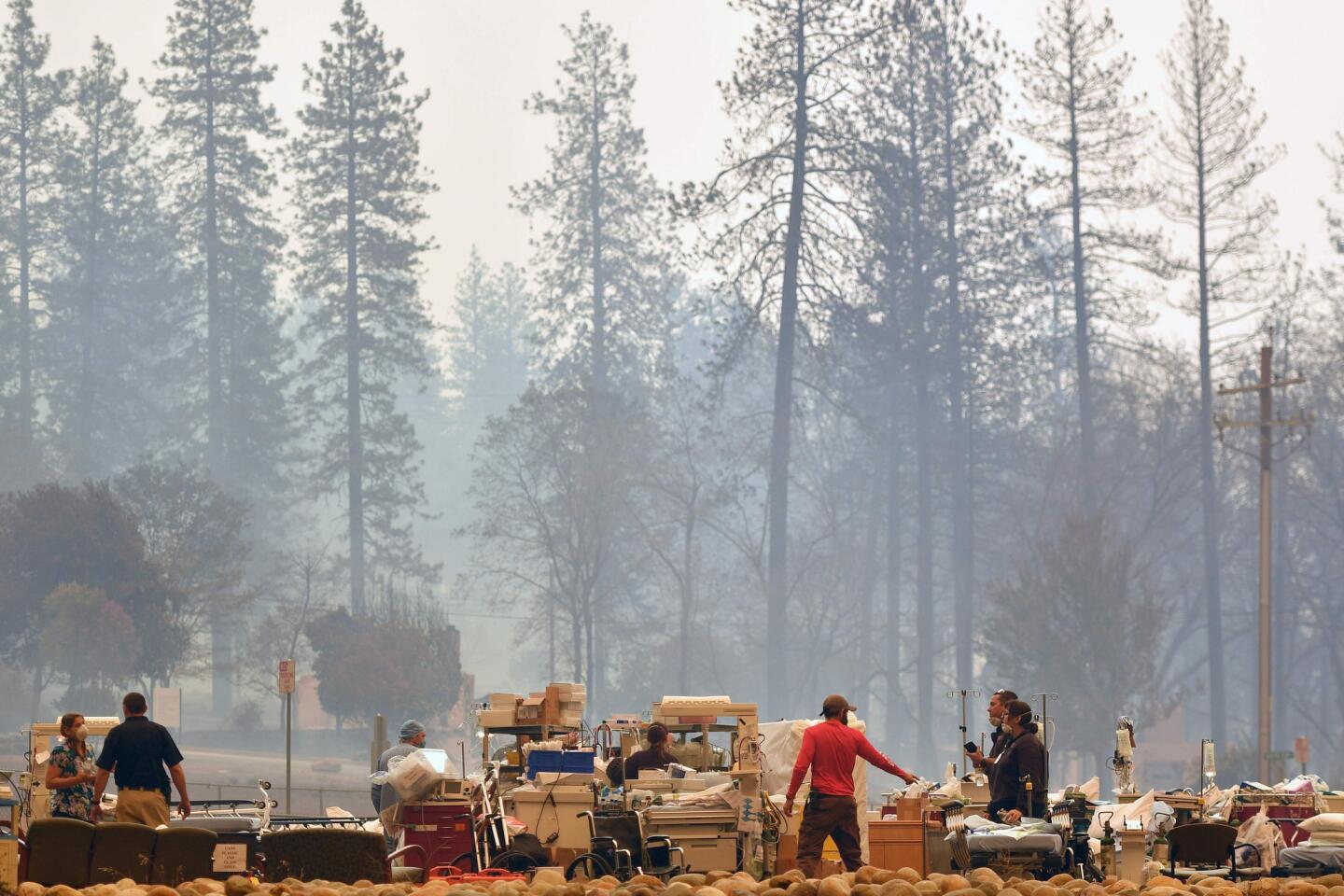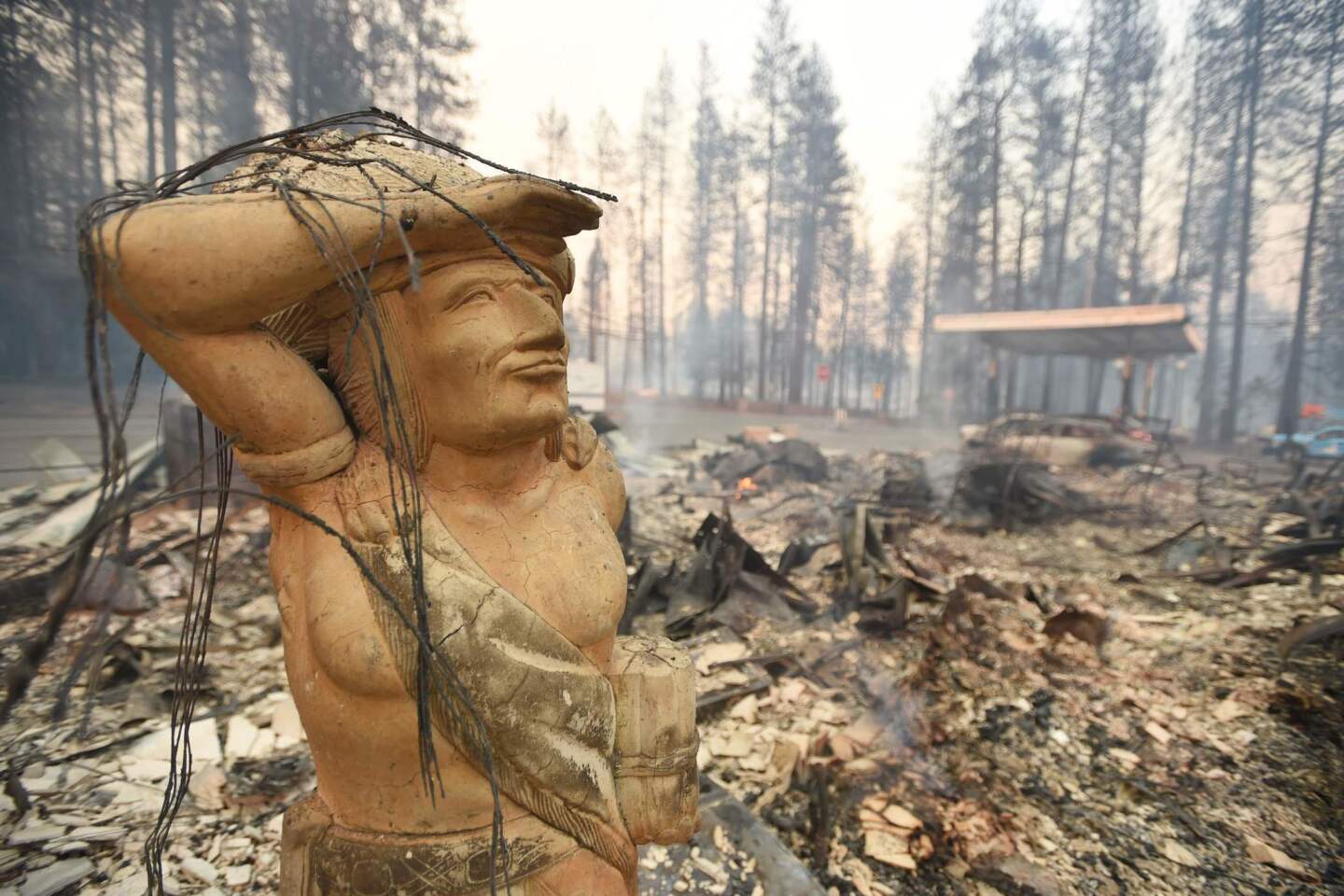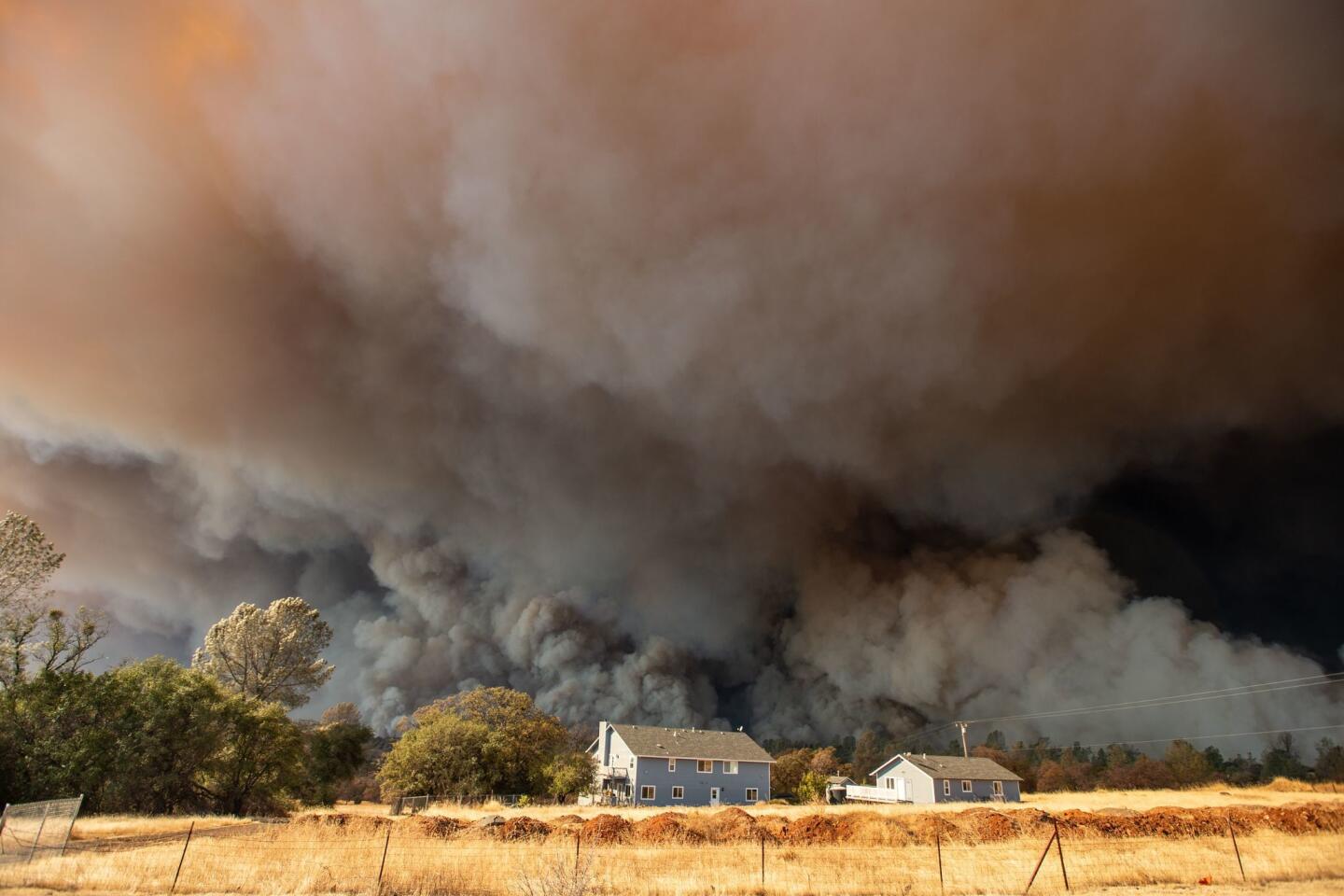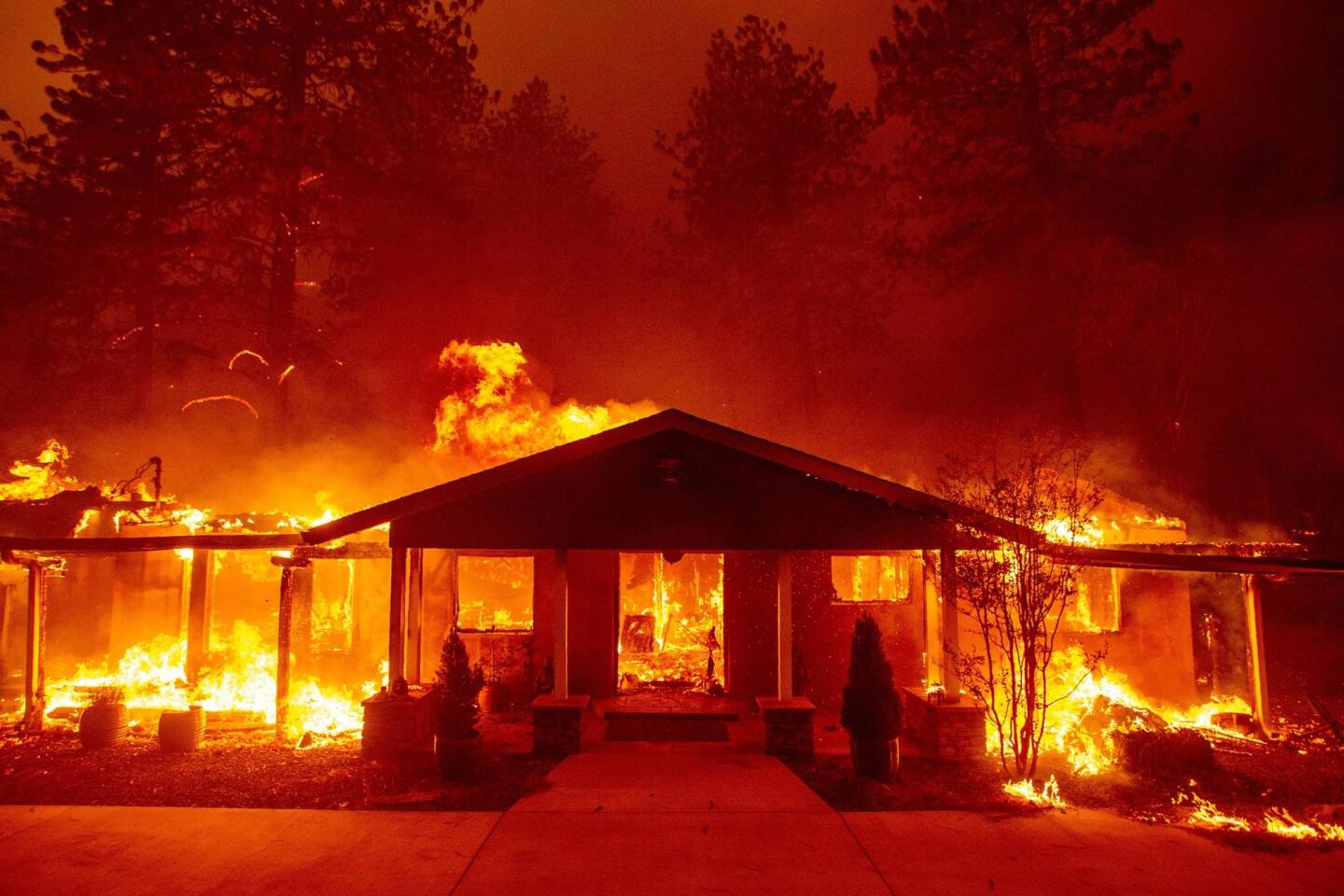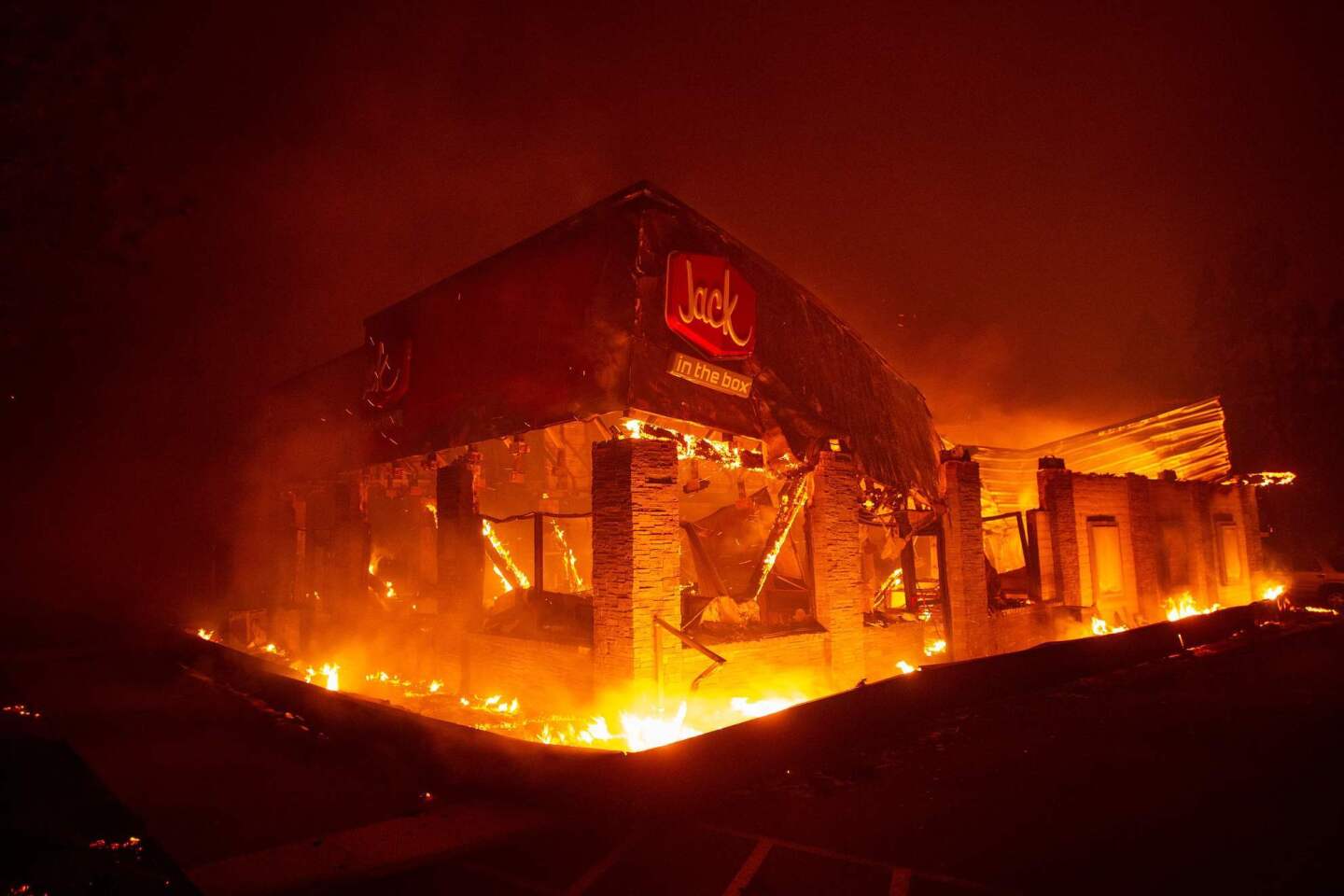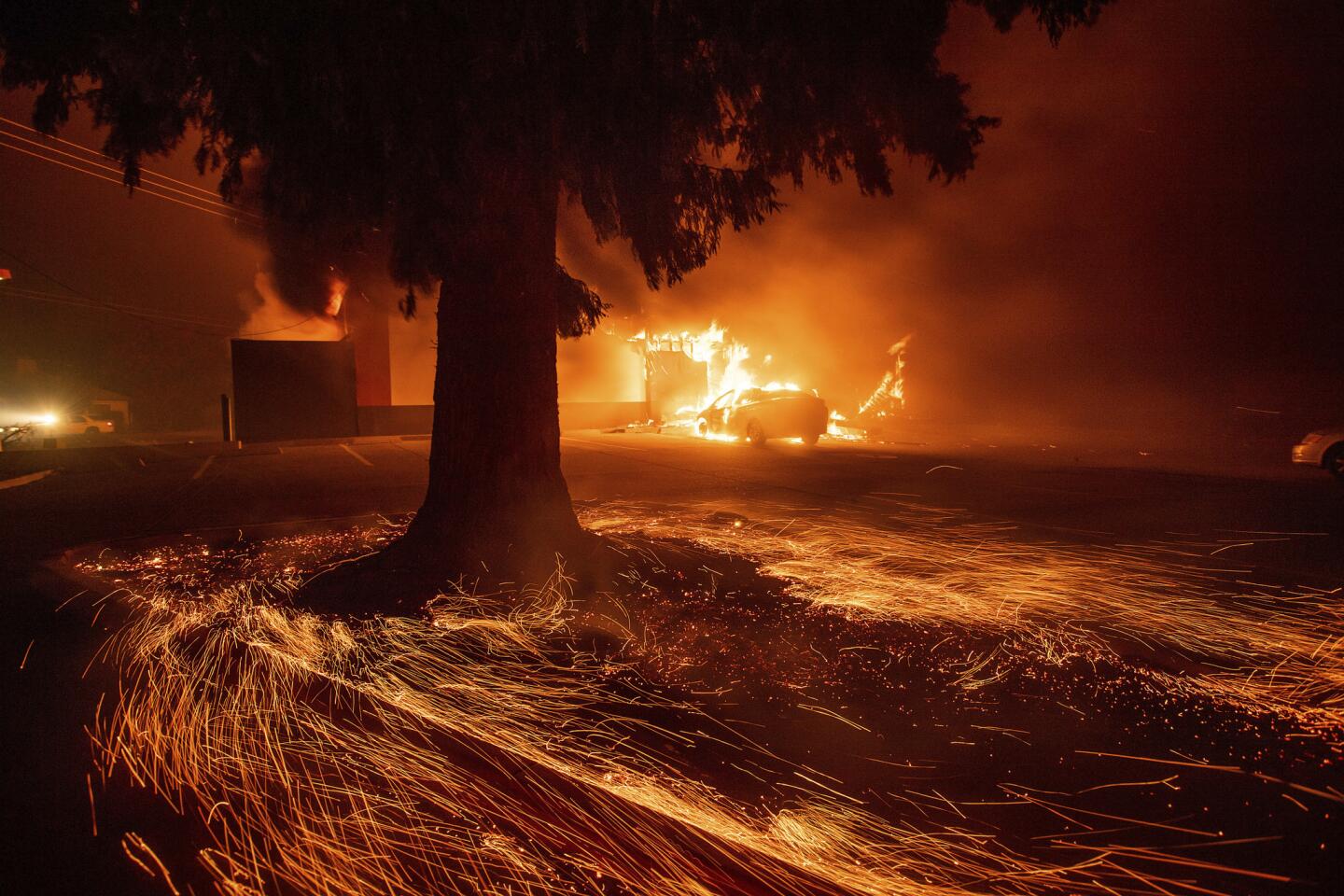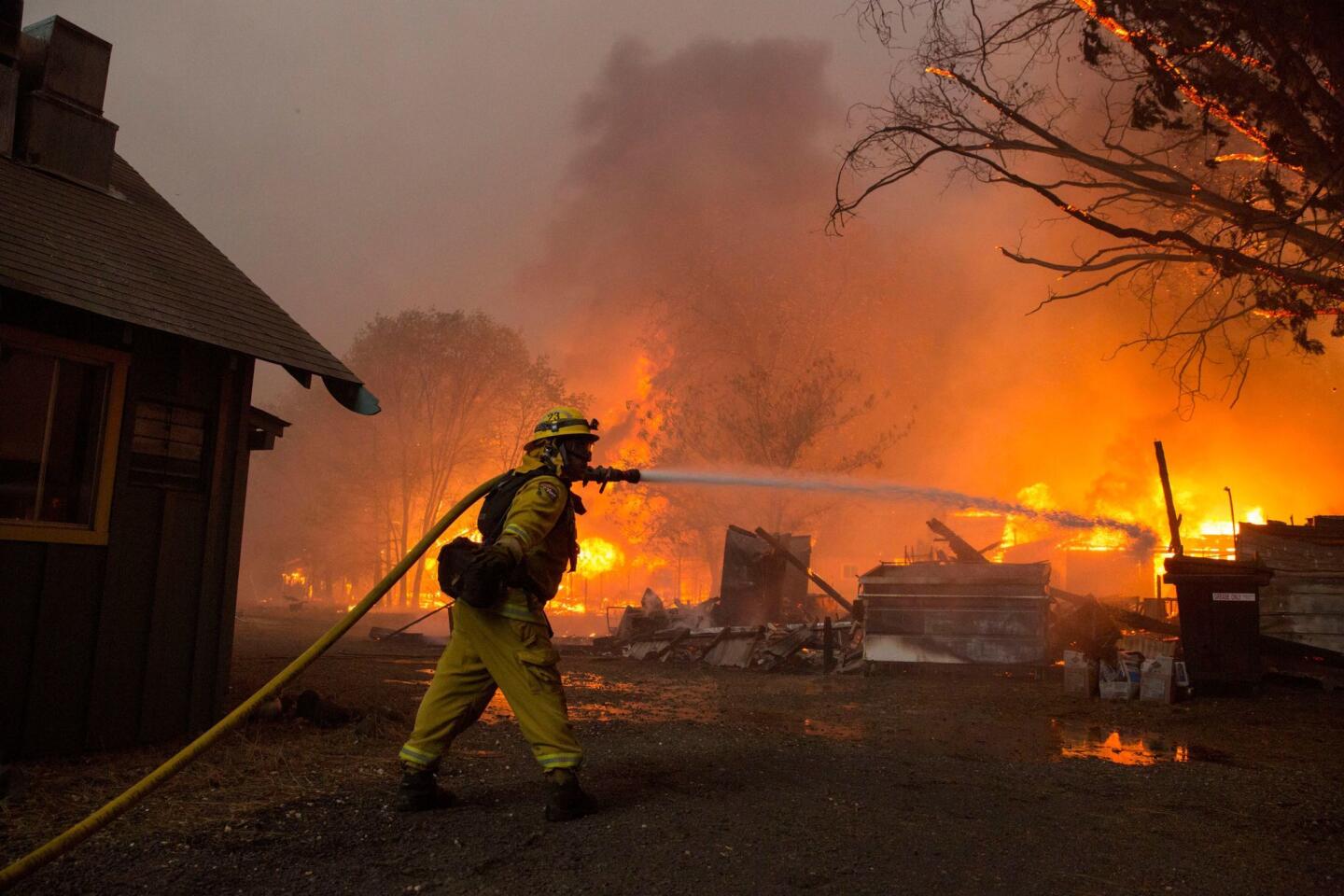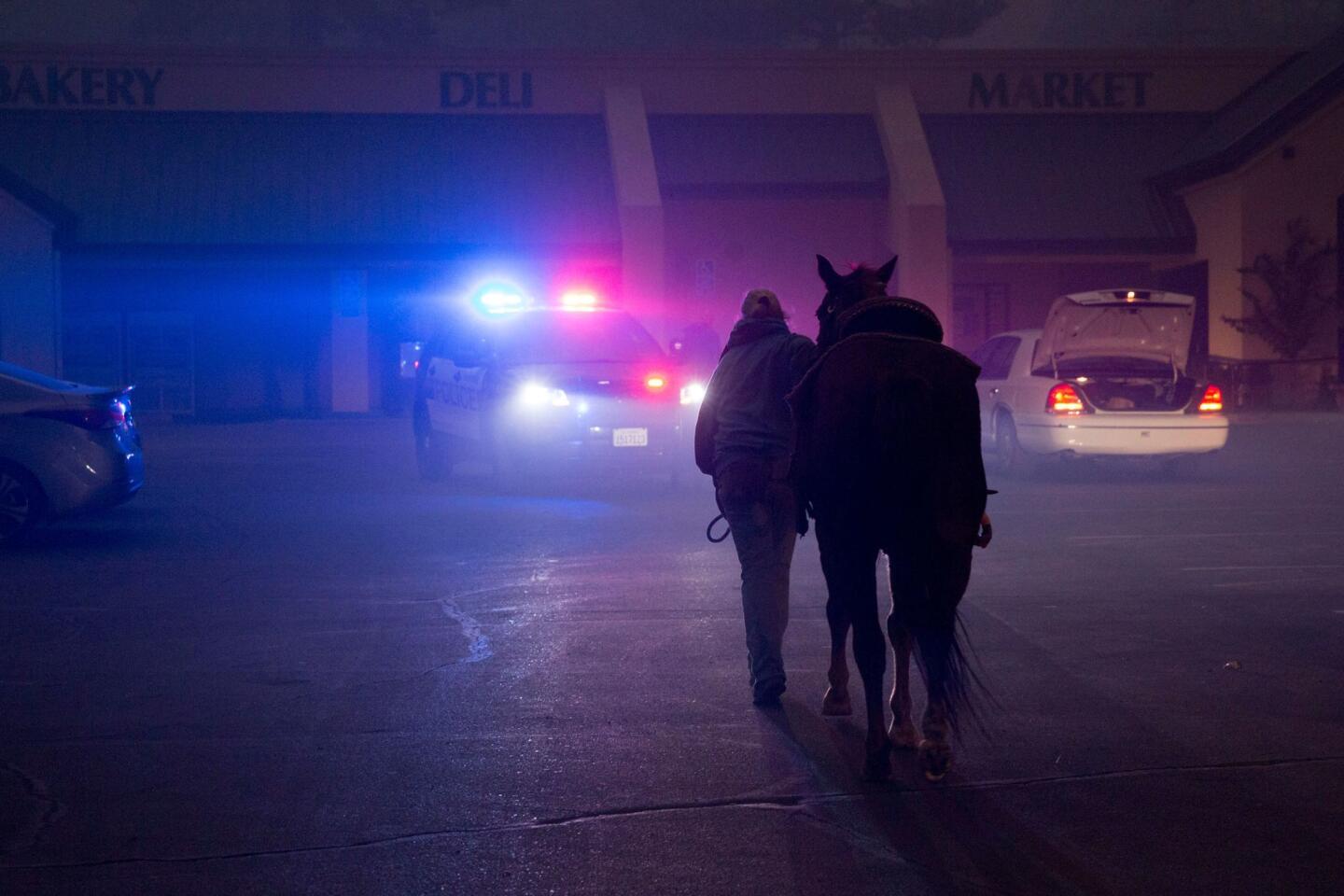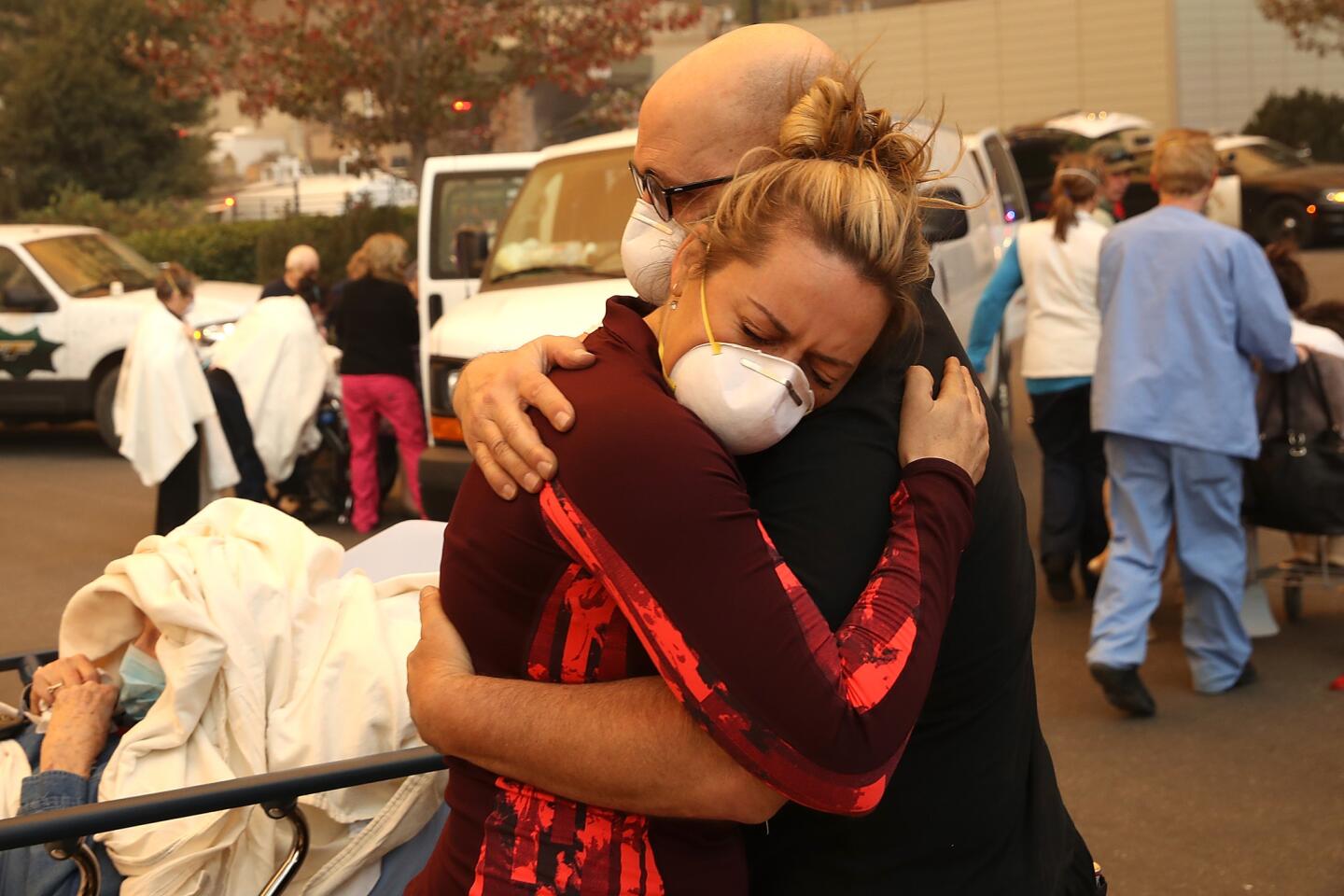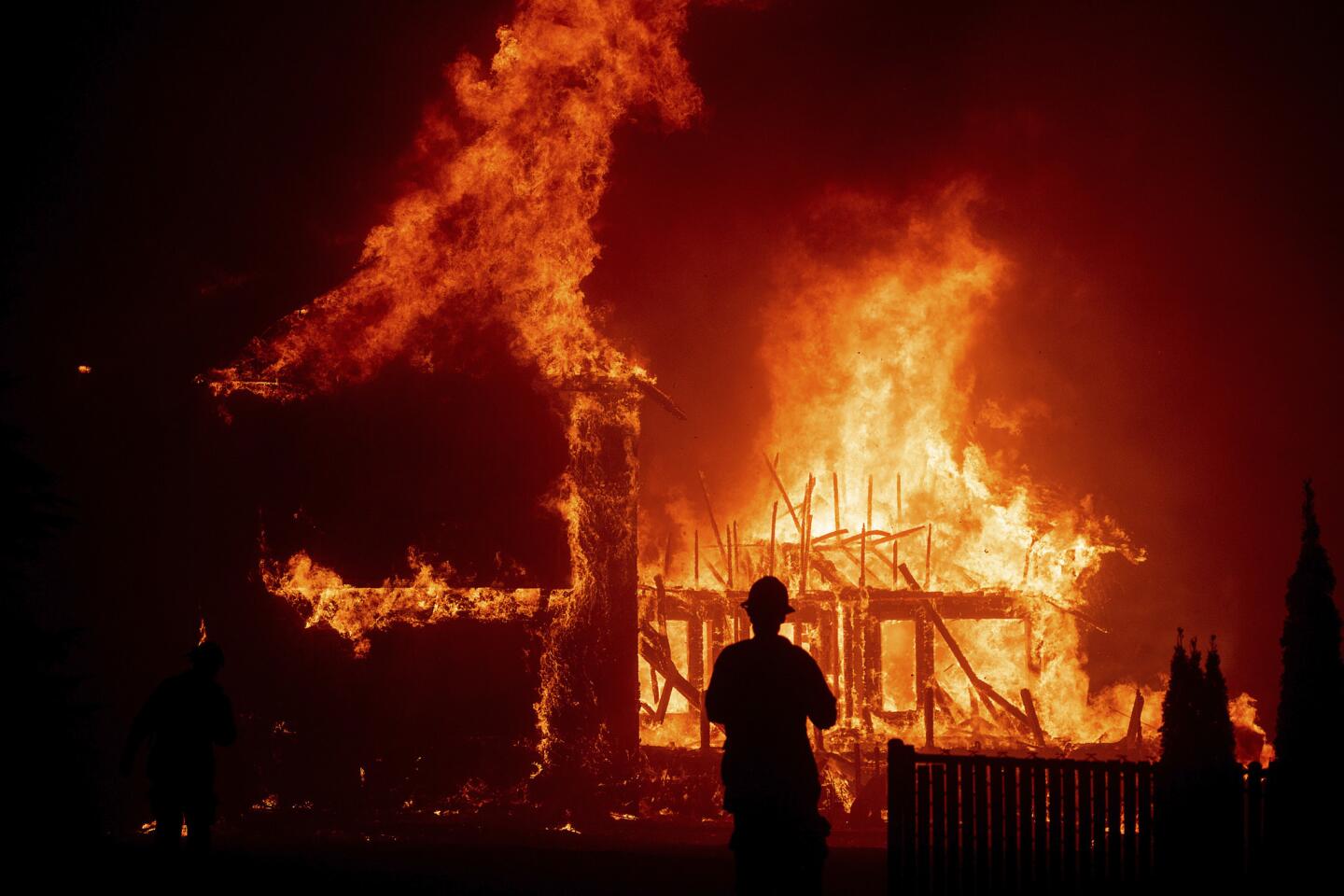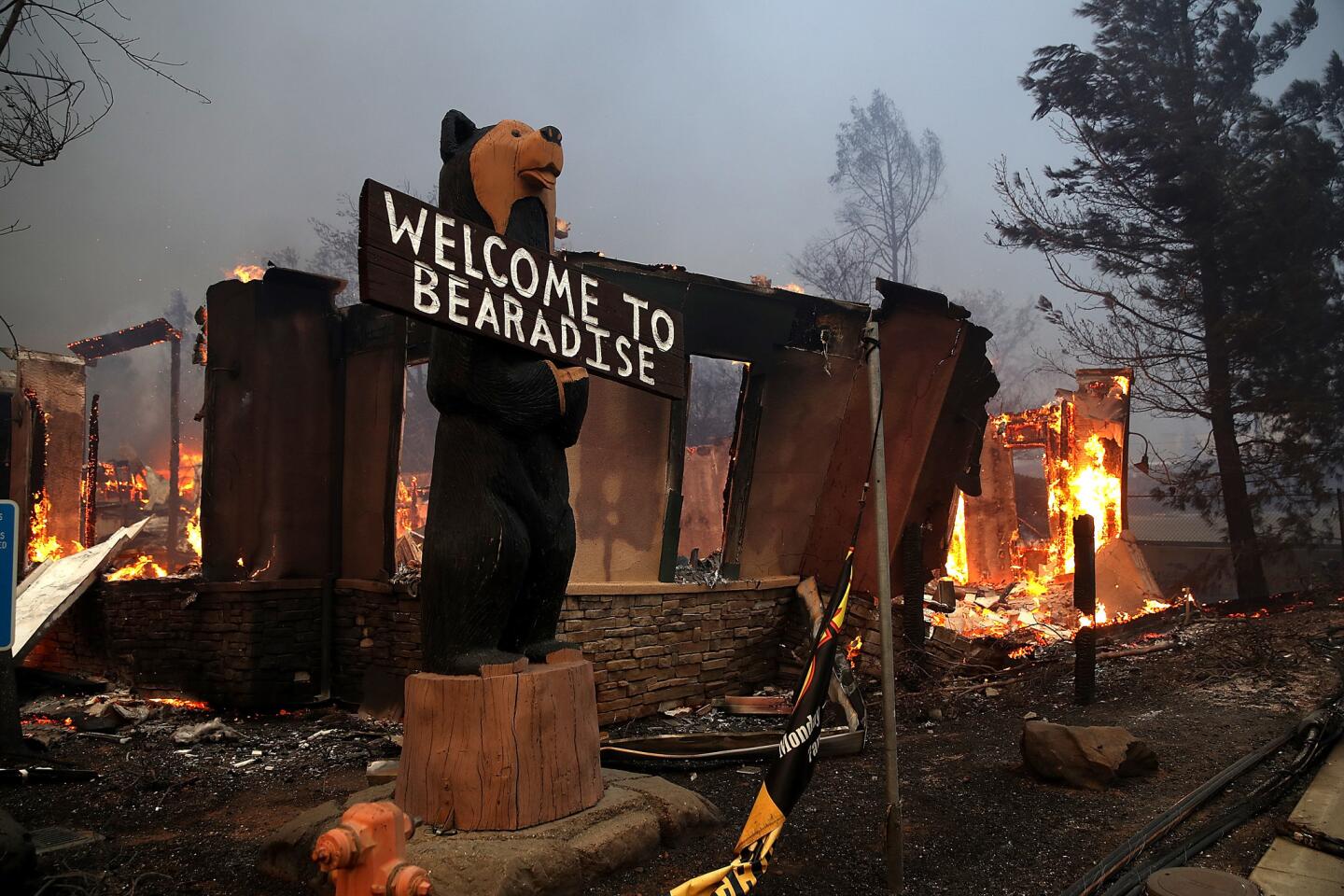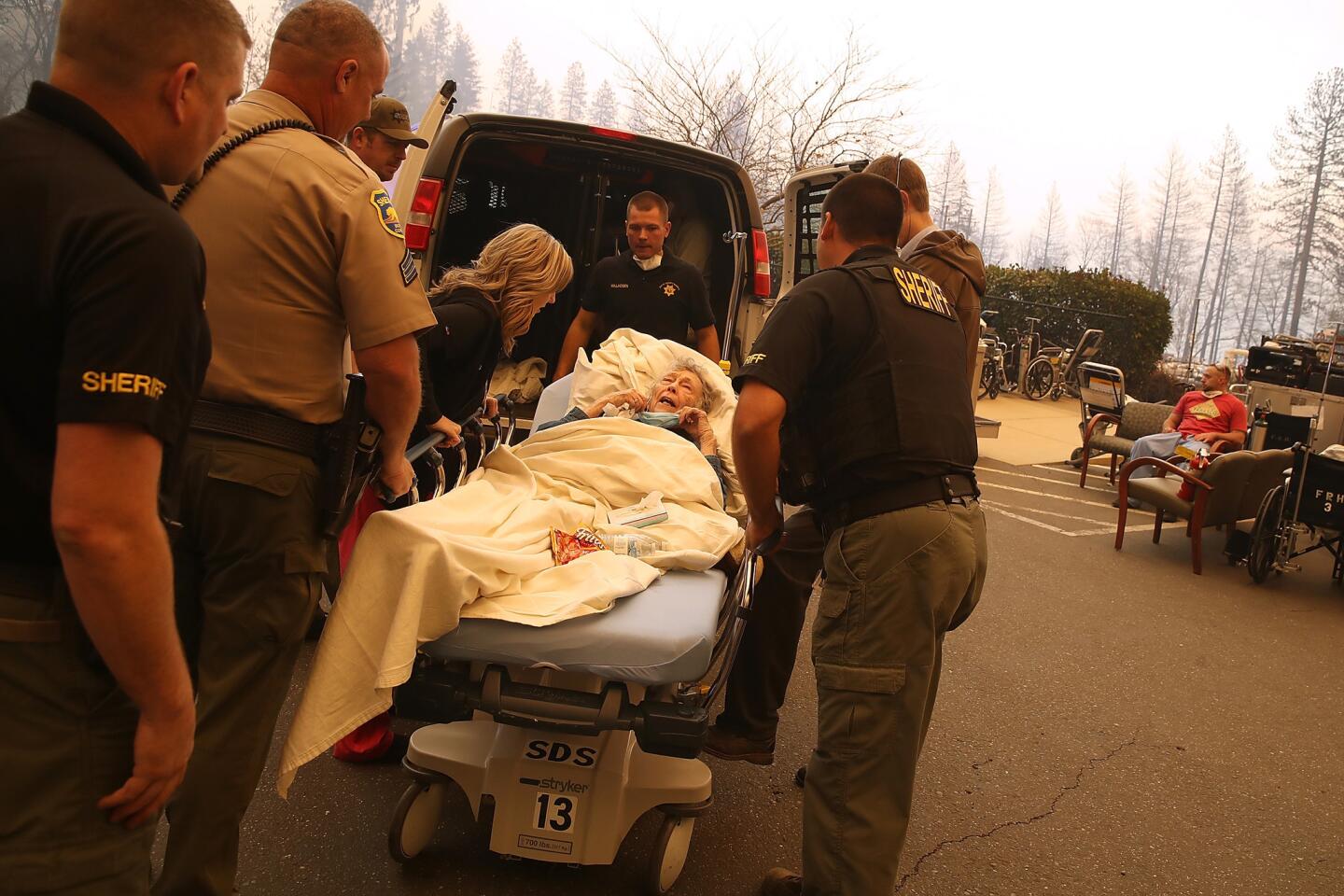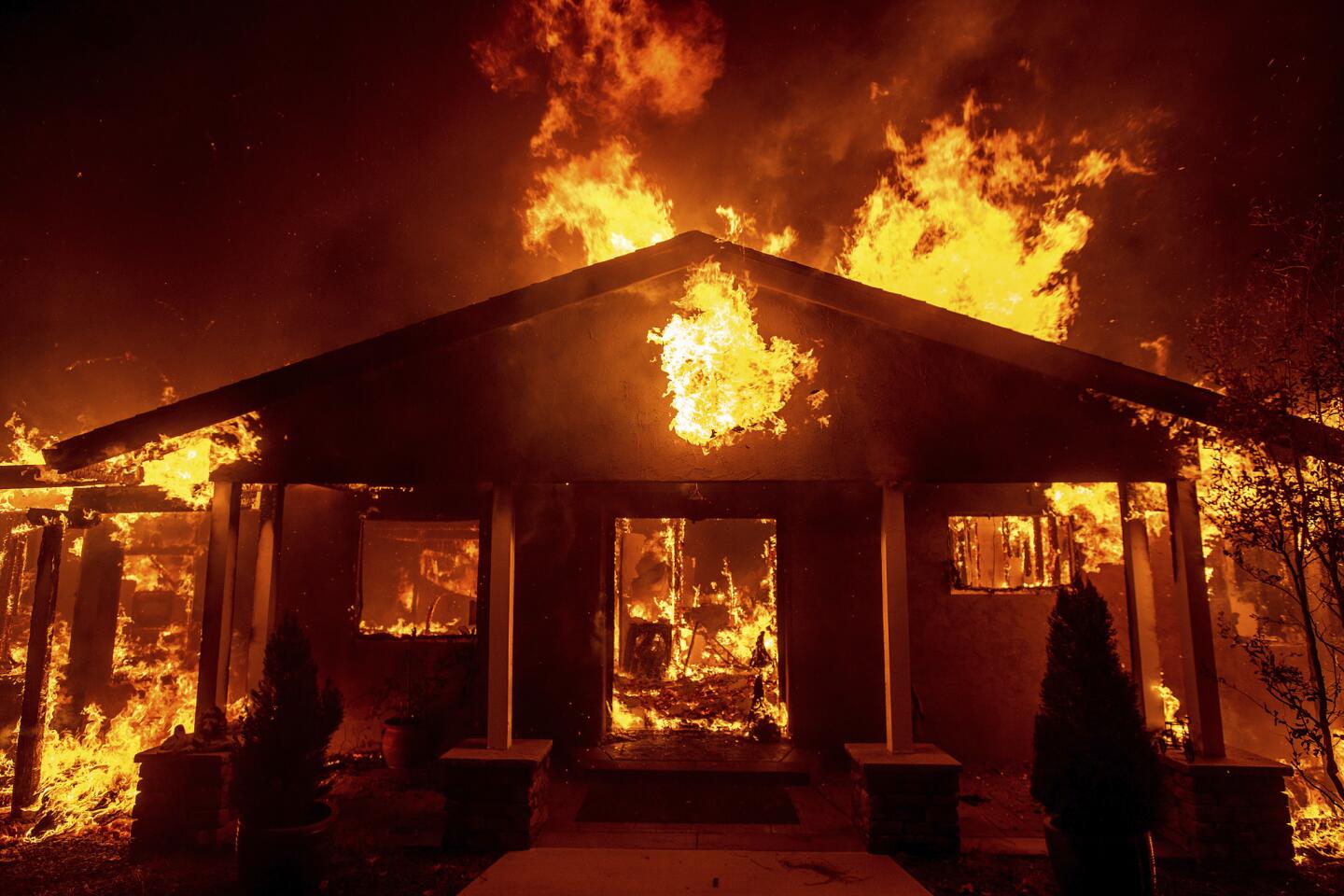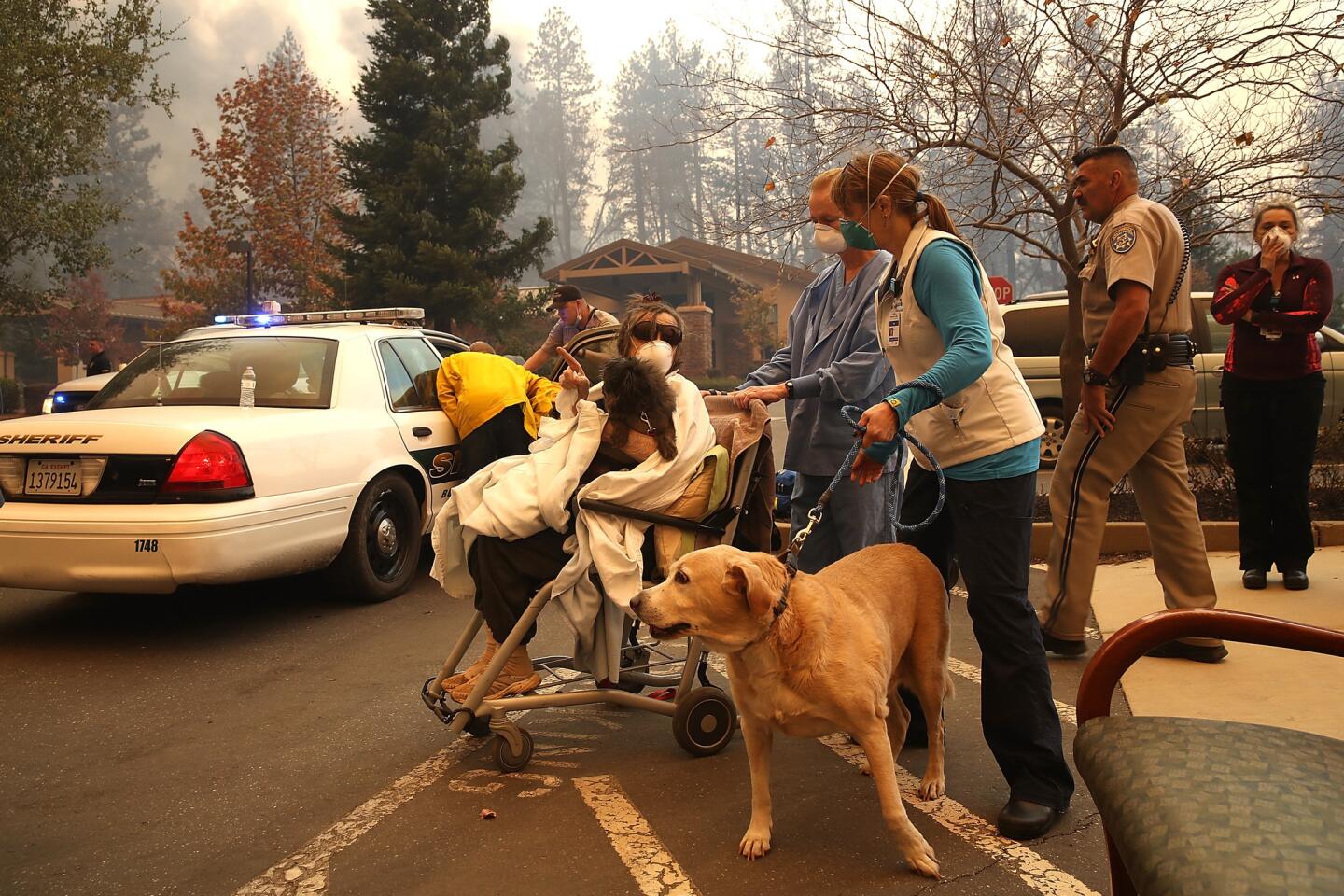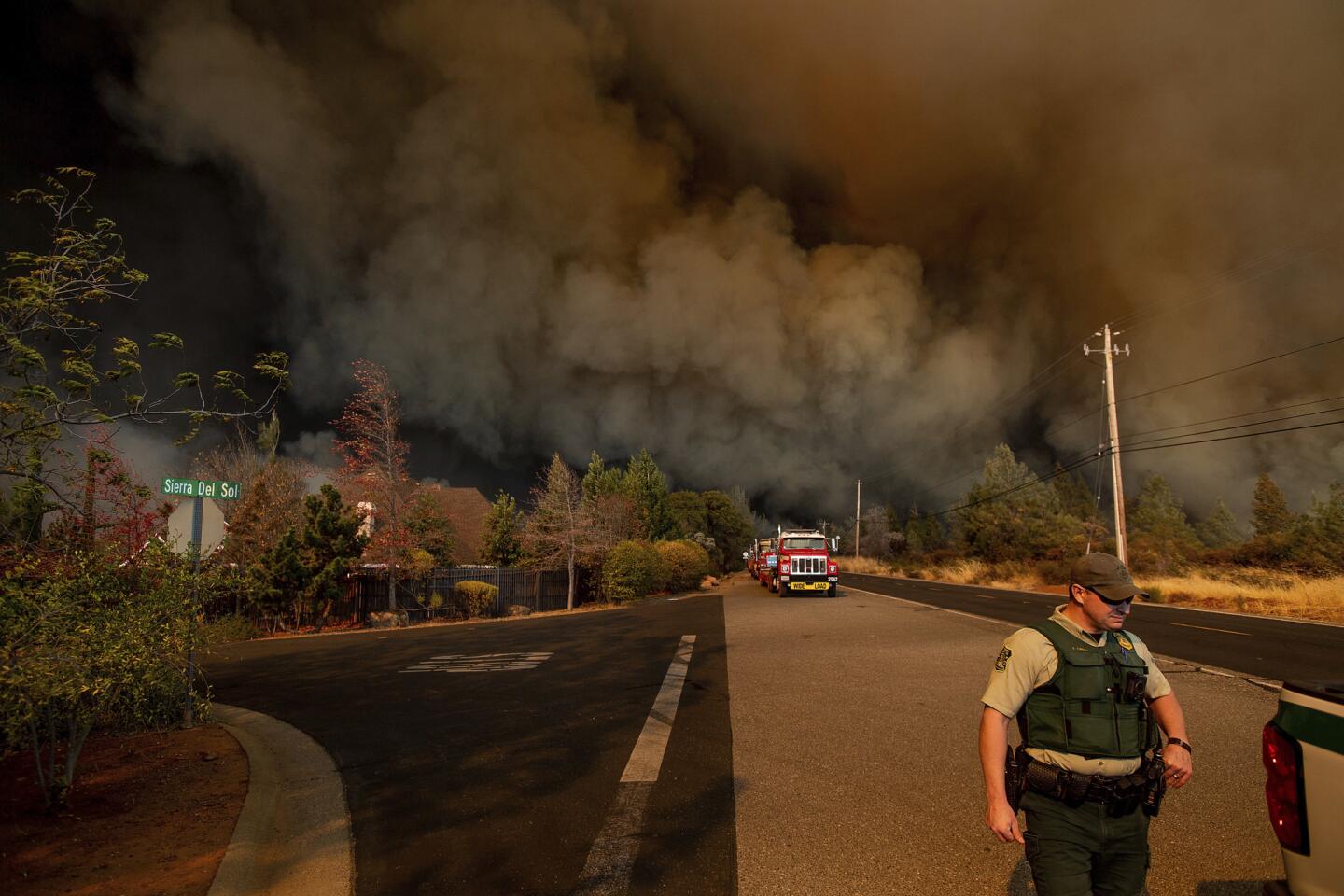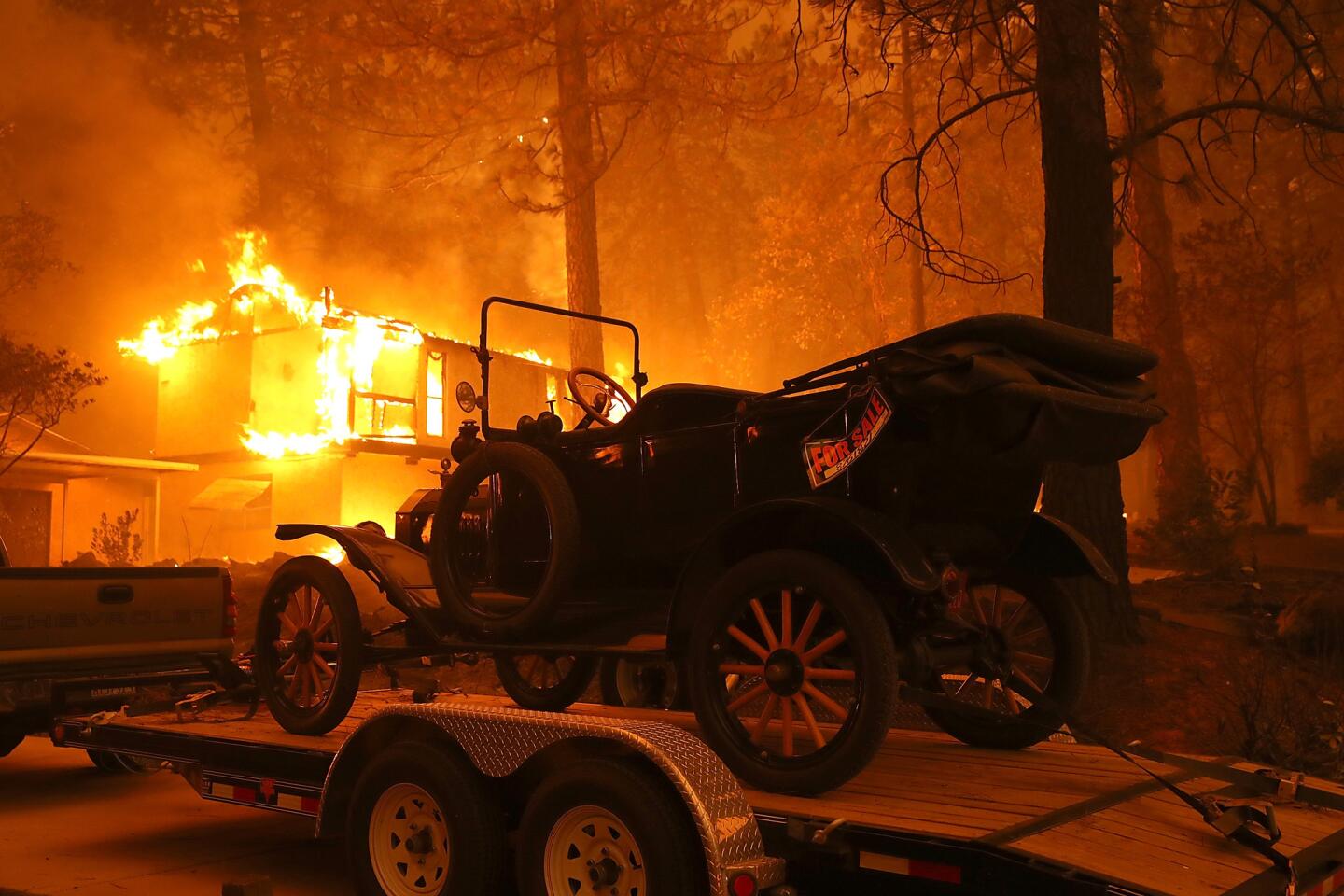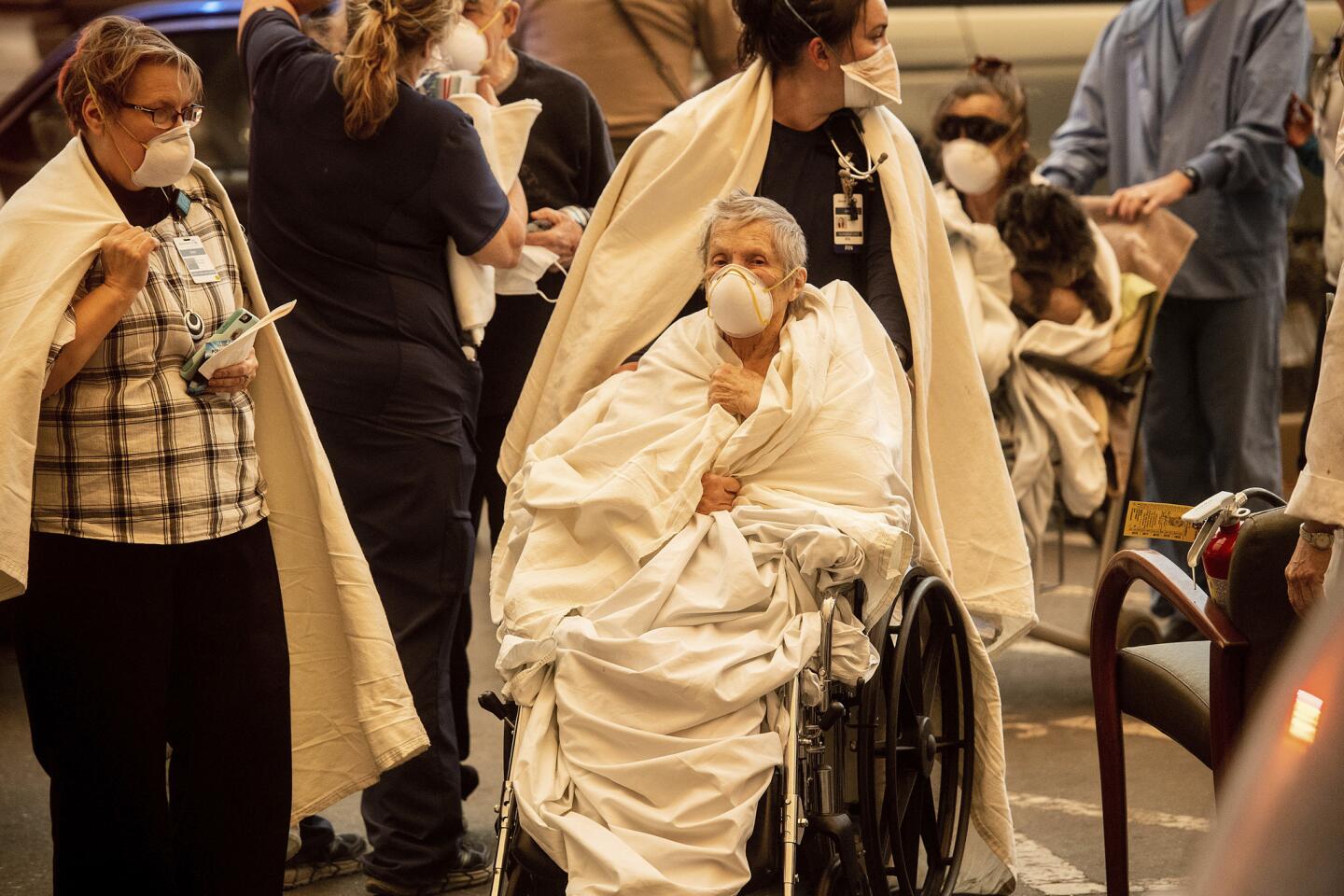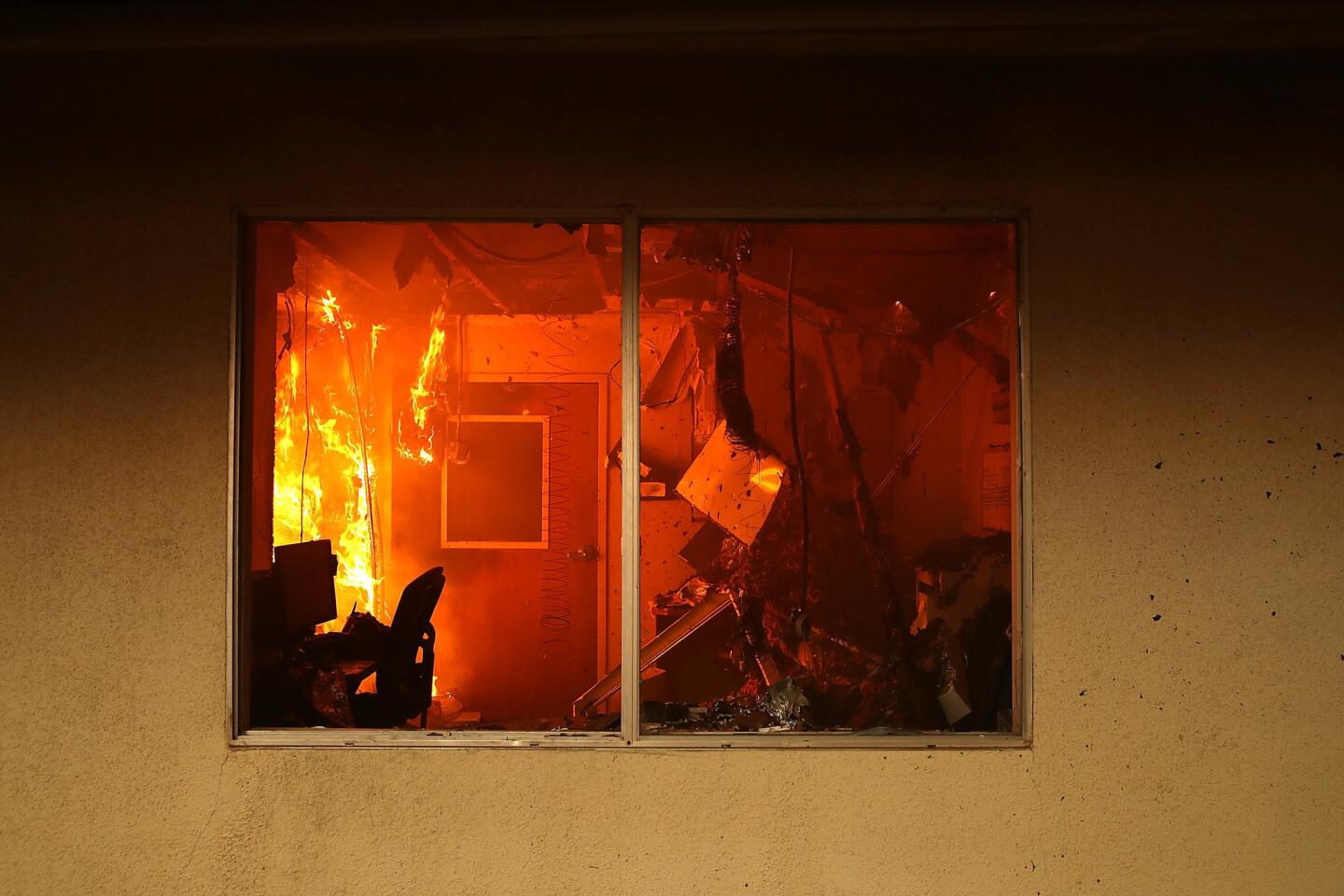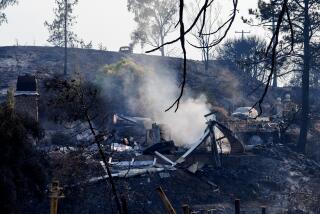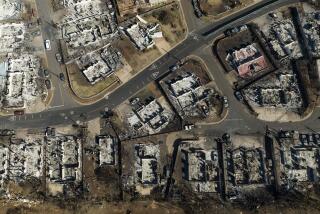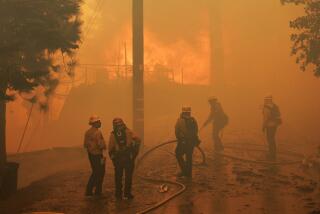PG&E power lines caused California’s deadliest fire, investigators conclude
Investigators with the California Department of Forestry and Fire Protection have concluded that Pacific Gas & Electric equipment caused the devastating Camp fire that destroyed nearly 14,000 homes and killed 85 people, most of them elderly, last year.
The conclusion of the Cal Fire probe marks a milestone in the recovery from the worst wildfire in modern California history.
“Cal Fire has determined that the Camp fire was caused by electrical transmission lines owned and operated by Pacific Gas and Electric located in the Pulga area,” the agency said in a news release Wednesday.
PG&E in February acknowledged that “the company believes it is probable that its equipment will be determined to be an ignition point of the 2018 Camp fire.”
The utility’s new chief executive, Bill Johnson, testified in a committee hearing at the state Capitol on Wednesday as the news was announced.
“It’s a disappointment that this happened,” Johnson said to state lawmakers. “Let’s not do it again.”
Johnson pledged that the company would demonstrate a higher commitment to safety under his watch, which includes visually inspecting all of its equipment in areas of high fire risk, intensifying vegetation management and shutting off power in advance of dangerous conditions.
“I will tell you we will be laser-focused on safety, but I won’t expect you to believe that until you see the results,” Johnson said. “The outcomes for the people, the citizens, the customers, have to be better here.”
PG&E filed for bankruptcy protection in part because of losses from the Nov. 8 fire, which scorched more than 153,000 acres and has put new pressure on utilities to improve the safety of their power distribution systems.
Scores of lawsuits have been filed against the state’s biggest utility on behalf of people who lost their homes, loved ones and pets. They accuse the utility of failing to properly maintain its equipment.
PG&E admits its equipment likely sparked California’s most destructive wildfire »
On Wednesday, Cal Fire spokesman Mike Mohler said the investigation was complicated by a number of factors.
“It was topography, it was the intensity of the fire and the footprint of the fire itself, how large it was,” Mohler said. “A fire investigation is very, very methodical and it takes a lot of time. Our investigators don’t have an opportunity to be 80% right, we have to be 100% right, and it’s about getting closure for the fire survivors and victims.”
The Camp fire was the deadliest blaze in state history and the latest in a series of wind-driven fires that have brought scrutiny to how utilities operate during extreme fire conditions.
Mohler said he was “cautiously optimistic” that 2019 will not be a repeat of the last two fire years. “We’re lucky to get additional precipitation in May in the north and south.… We’ve prepared for the worst, but we’re hoping for the best.”
More to Read
Sign up for Essential California
The most important California stories and recommendations in your inbox every morning.
You may occasionally receive promotional content from the Los Angeles Times.
